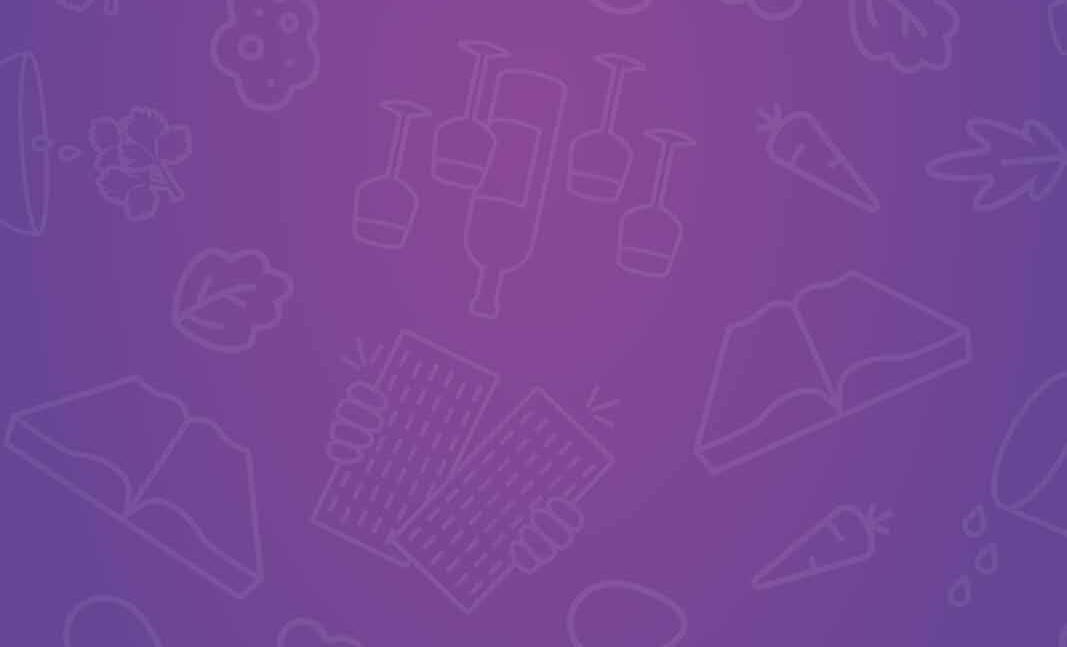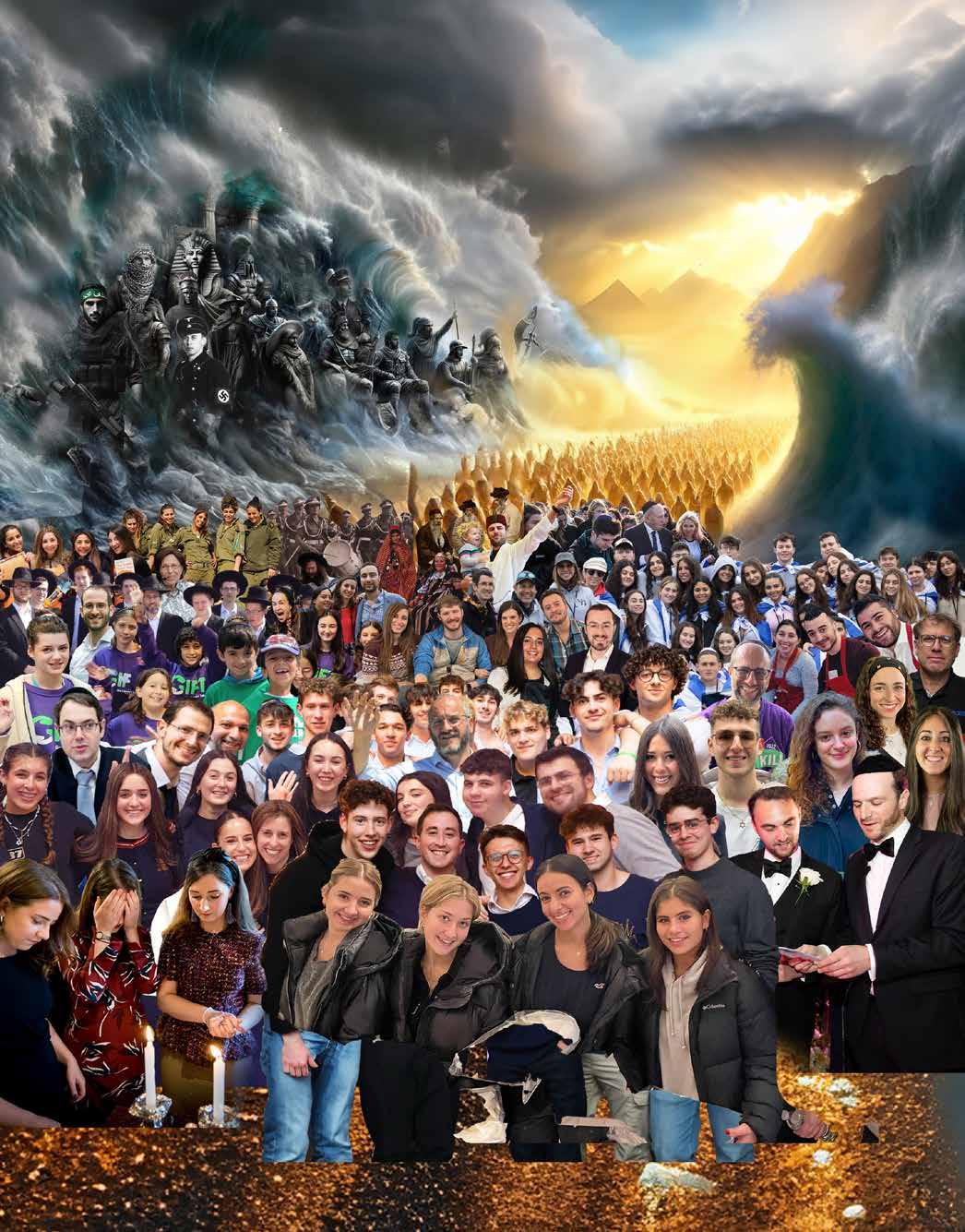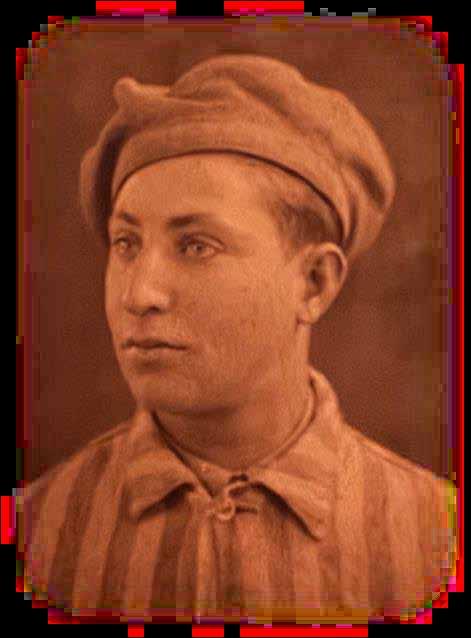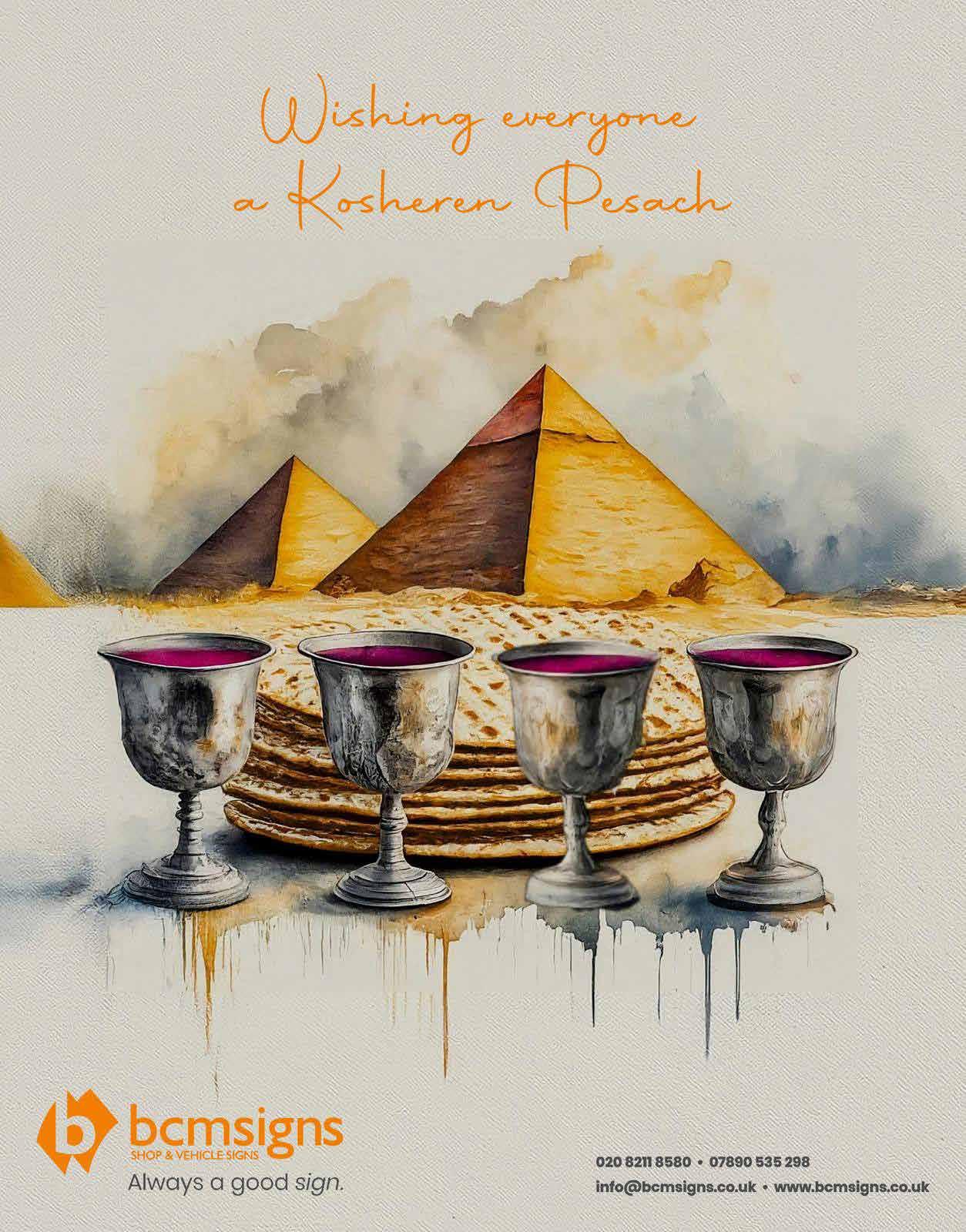



























PARASHAT TZAV | SHABBAT HAGADOL SHABBAT: BEGINS ENDS
London 19:36 20:41
Manchester 19:48 20:57
Leeds 19:42 21:00
Liverpool 19:35 20:50
Birmingham 19:47 21:04
Antwerp 20:14 21:27
Bournemouth 19:38 20:51
Gateshead 19:45 21:04
Jerusalem 18:29 19:44
































PARASHAT TZAV | SHABBAT HAGADOL SHABBAT: BEGINS ENDS
London 19:36 20:41
Manchester 19:48 20:57
Leeds 19:42 21:00
Liverpool 19:35 20:50
Birmingham 19:47 21:04
Antwerp 20:14 21:27
Bournemouth 19:38 20:51
Gateshead 19:45 21:04
Jerusalem 18:29 19:44



BY DAVID SAFFER
Prime Minister Benjamin Netanyahu and President Donald Trump discussed tariffs, Iran, the Gaza war and hostages still held by Hamas at the White House on Monday.
Trump announced that the US will hold talks with Iran on a deal surrounding the Iranian nuclear programme on Shabbat in Oman.
Steve Witkoff, Trump’s special enjoy to the Middle East, will meet Iranian Foreign Minister Abbas Araqchi in high level talks. This is the first meeting between the US and Iran in a decade.
Trump told reporters a deal with Iran “would be really great” and the Iranian regime “can’t have a nuclear weapon”.
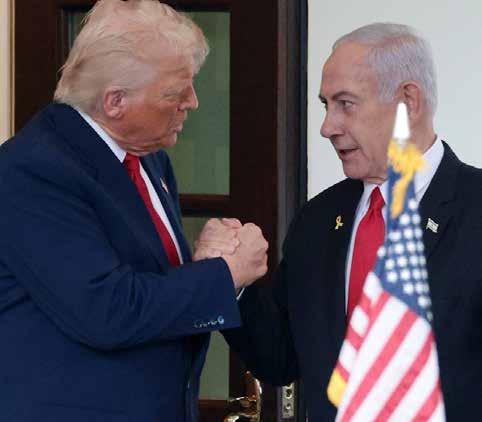
“I think everybody agrees that doing a deal would be preferable to doing the obvious,” he noted.
Trump added that if the talks don’t go well, Iran would be in big trouble.
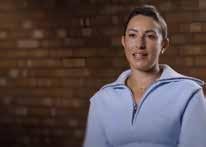

Regarding tariffs, Trump welcomed Israel eliminating barriers to US imports.
“I think Israel can serve as a model for many countries who ought to do the same,” Netanyahu said.
Iran’s proxies threatening Israel and the US have been hit hard in recent strikes in Syria, Hezbollah in Lebanon, Hamas in Gaza and the Houthis in Yemen.
Following the Trump-Netanyahu meeting US Secretary of Defense Pete Hegseth told reporters: “It’s been a bad three weeks for the Houthis, and it’s about to get worse.”
Aside from the Iran talks, Trump is involved in tariff negotiations with numerous nations and is also scheduled to visit Saudi Arabia next month. By then he would like a ceasefire deal in Gaza in place.
According to the latest Egyptian ceasefire proposal, Hamas would release eight living and eight deceased hostages for Palestinian prisoners in Israel. The ceasefire would last 40 to 70 days. Netanyahu told reporters Trump was a “good partner” in attempts to free the hostages.
Continued on page 2
I found out I had lymphoma on 9th February 2024. I was in shock. At 35, how could I have cancer? I didn’t know anyone my age who had been through it. Making that first call to Chai was difficult, but everyone there was either in the same boat as me or was there to help people like me. What an amazing place. Chai truly cares for everyone and helped me get
Wishing you a happy and kosher Pesach
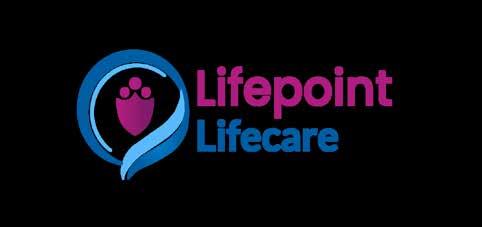




Continued from page 1
Trump said that he is “trying very hard” to get the hostages out of Gaza.
As for a ceasefire deal, the US is looking at the latest option. “We’ll see what happens,” he said. Trump added that Netanyahu is “working very, very hard” on freeing the hostages.
Trump calls Gaza an “incredible piece of important real estate”, and a US peace
force “controlling and owning” the Gaza Strip would a good thing.
Trump says he would create a “freedom zone” in Gaza. Netanyahu said it will take years to rebuild Gaza following the war.
Netanyahu and his wife Sara were greeted in Washington DC by the Israeli ambassador to Washington, Yechiel Leiter, on Sunday.
Netanyahu met US Commerce Secretary Howard Lutnick and Trade
Representative Jamieson Greer.
“The meeting was warm, friendly and productive,” Netanyahu’s office said.
Netanyahu also met Witkoff, regarding ceasefire negotiations.
Former Israeli hostages Yair Horn, Aviva Siegel and Keith Siegel released from captivity in Gaza issued a statement ahead of the Trump-Netanyahu meeting to free the hostages as a “top priority”.
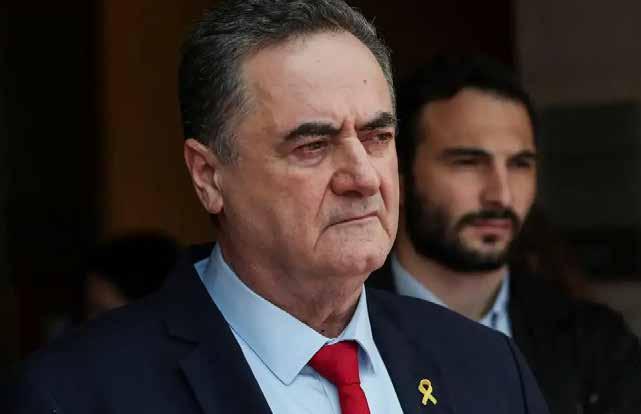
The statement by the Hostages and Missing Families Forum noted: ‘President Trump, Prime Minister Netanyahu, while 59 hostages remain in Gaza, we cannot begin to heal. While they are still there, we are still there with them.’
The statement praised Trump for making a deal possible once before.
Israeli Defense Minister Yisrael Katz, meantime, presented “unequivocal” proof of Iran’s role in the October 7 terror attack and efforts to destroy the State of Israel.
Speaking during a visit to Israel’s Special Operations Unit, Katz revealed a transcript between






former Hamas leader Yahya Sinwar and Muhammad Deif with the Quds Force of the Iranian Revolutionary Guards.
“I present here today unequivocal proof of Iran’s support for Hamas’ genocidal plan to wipe Israel off the map,” Katz said. “Sinwar and Deif demanded $500 million from Iran’s Quds Force commander to carry out their plan and they received it.”
The classified documents from Hamas, Hezbollah and other terror factions were found by the Special Operations Unit in Hamas tunnels in Gaza.
“In this document, Sinwar and Deif explicitly request the transfer of half a billion dollars from Iran to fund the destruction of the State of Israel,” Katz explained.
“In response, Hassan Izadi, the head of the Palestinian branch of the Revolutionary Guards, pledged the money, despite Iran’s severe economic crisis and the suffering of its people. The Iranian regime made clear, annihilating Israel takes precedence over the well-being of its own citizens.”
“The conclusion is clear,” Katz added. “Iran is the head of the snake. Despite its denials, it continues to fuel terrorism across the region, from Gaza to Lebanon, Syria, Yehuda and Shomron, and now through the Houthis in Yemen, all under the same banner: the eradication of the Jewish state.”
“We will not rest until the Iranian axis of evil is dismantled and destroyed,” Katz concluded.







I found out I had lymphoma on 9th February 2024. I was in shock. At 35, how could I have cancer? I didn’t know anyone my age who had been through it.
Making that first call to Chai was difficult, but everyone there was either in the same boat as me or was there to help people like me.
What an amazing place. Chai truly cares for everyone and helped me get my life back on track.
Over the last 10 years, the number of young people supported by Chai has increased by more than 200%.




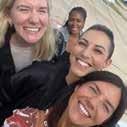






























For more information on our extensive range of specialised services and care across the UK, please call our Freephone helpline on 0808 808 4567 or visit www.chaicancercare.org


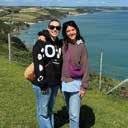








Hear from Elad Simchayoff, one of Israel’s most respected journalists with over 20 years experience, and the founder of the top-ranked Israeli podcast One a Day.
As a renowned European correspondent for Channel 12, Israel’s largest and most influential news channel, Elad has provided in-depth coverage of major global events, with a particular focus on the rise of antisemitism and the evolving international perceptions of Israel.
• Hear Elad’s firsthand experience as an Israeli correspondent in London and how his role shifted following October 7th.
• Gain insights into the changing media landscape and the evolving global view of Israel.
• Discover key takeaways from his podcast and impactful lecture The 8th Front, where he delves into the battle for the global narrative and the rising tide of antisemitism.


UPCOMING EVENT – TUESDAY 27 MAY
YORAM ZAK, ACCLAIMED ISRAELI TV DIRECTOR, EDITOR, AND DOCUMENTARY FILMMAKER. More Info & Register: www.jnf.co.uk/voices-zak



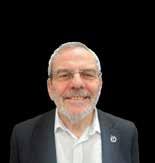











BY DAVID SAFFER
British Airways has resumed flights to Israel.
BA’s return follows growing UK traveller numbers to Israel in 2025 and a steady return in confidence of the Israel Tourism industry.
Combined, 13,200 UK visitors travelled to Israel up to February, a 29% increase over the same period in 2024. This positions the UK as the second-largest European market for Israel tourism, behind France (18,400), and third globally after the United States (56,100).
Overall, 167,000 visitors entered Israel in the first two months of the year.
While numbers represent 42% of visitors compared to the pre-COVID peak in 2019, the trend shows steady improvement as flight schedules normalise and travel confidence returns.
BA’s red-eye flight from Heathrow Airport landed at Ben Gurion International Airport in the early hours of Sunday morning. The morning flight to London left Ben-Gurion at sunrise.
Ben Baruch welcomed the news.
“It represents another significant step forward for tourism between the UK and Israel,” he said. “This resumption of service means more British travellers will once again explore Israel’s world-renowned historical sites, vibrant culinary
scene and beautiful Mediterranean beaches.”
“We look forward to seeing visitor numbers continue to grow as British Airways helps connect more UK tourists with all that Israel has to offer,” Ben Baruch added.
Since the 10/7 terror attack El Al has maintained service to Heathrow and Luton airports.
Israir and Wizz Air operate flights between Tel Aviv and the UK. Virgin Atlantic and easyJet have not resumed flights to Israel but both are rescheduled to begin flights this year.
Consumer confidence in Israel is building.
Leading UK travel operators specialising in Israel travel, meantime, have reported significant growth in the first quarter of 2025.
Pesach bookings show a 60% increase this year, a 10-fold uplift on 2024.
Hannah Blustin of Pomegranate Travel confirmed the upswing.
“There has been a 10-fold increase in Passover bookings compared to last year,” she said. “There is now significant momentum behind Israel enquiries and bookings. There is a large amount of pent-up demand, and clients are now feeling confident enough to book Israel.”
Jeremy Segel of West End Travel shares the optimism.
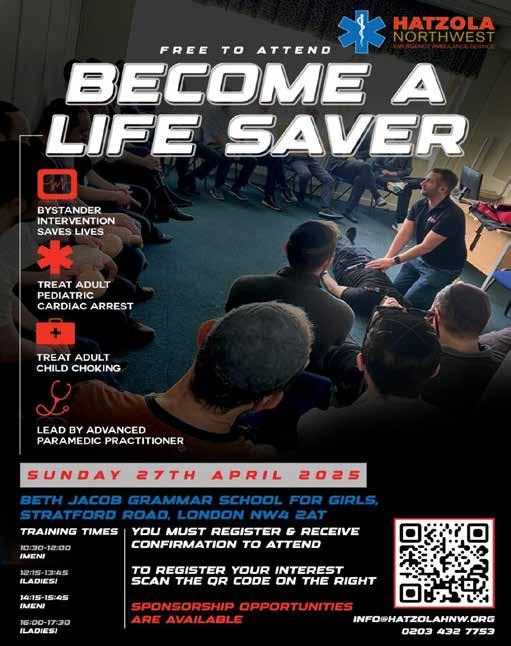
“The difference between last year’s Pesach bookings and this year’s is significant,” he said. “People were still in shock last year but things seem to be more normal day to day in Israel now, so confidence has grown. We have had many more family bookings this year compared to last.”
Commenting on the resumption of hostilities, Segel added: “We have had very few cancellations. People want to be there, to show their support and to spend Pesach with friends and family.”
Travelink, one of the UK’s leading Israel tour operator, reports that while bookings for 2025 are approximately 60% higher than in 2024, they remain 30-40% below 2023 levels.
For Pesach packages in Tel Aviv hotels, they have sold around 35 rooms this year compared to a pre-2023 average of 60 rooms.
Travelink’s Anthony Gothold acknowledges a difficult five years, but a turnaround is occurring.
“We have invested in new technology and negotiated better rates with suppliers due to our long and strong relationships, so feel confident about the future as Israel has so much to offer,” he said.
Segel added: “El Al was the most popular airline by far this year as people were nervous to book with BA or the low cost airlines because of the risk of last minute
cancellations.”
BA’s return is a significant development for UK-Israel travel. They are the largest carrier to return to the route.
The industry is witnessing last-minute bookings and advance planning for the summer and High Holy Days later in the year.
Pomegranate Travel has reported bookings throughout the year including the festive season suggesting a return to more normal booking patterns.
Travel operators have also seen a shift in traveller motivations.
“Clients are looking to engage more deeply post-October 2023, asking us how they can help and better understand the region through their travel,” observed Blustin.
Ben-Baruch expressed optimism about the growing numbers.
“We are encouraged by the remarkable resilience shown by the UK market,” he said. “This growth of interest and travel demonstrates the deep connections between our countries and the enduring appeal of Israel as a destination for our UK travellers. I’m really pleased to hear the positive messages from the UK’s key travel agents which give us confidence in the eventual return of normal levels of visitor numbers between our two countries.”

LICENSING WEBSITE: WWW KOSHER ORG UK
CERTIFICATION WEBSITE: WWW KLBDKOSHER ORG
KLBD (Kashrut Division of the London Beth Din) is the leading UK authority on Jewish Dietary Laws It operates under the aegis of the Court of the Chief Rabbi of the United Hebrew Congregations of the Commonwealth
We are recruiting a Factory Inspection Coordinator to support our Factory Auditors / Mashgichim and the Kosher Certification Administration Manager to help organise kashrus audits at our 2200 factories around the world
THE SUCCESSFUL APPLICANT MUST
Possess strong office-based skills, including proficiency with Microsoft Word, Excel, Outlook, and databases, fluency in English, and excellent interpersonal and written communication skills Be self-motivated and able to manage time efficiently for a heavy workload
YOUR JOB WILL INCLUDE
LOCATION: NORTH-WEST LONDON OFFICE
HOURS: FULL TIME
SALARY: DEPENDS ON EXPERIENCE
Liaising with companies and factories around the globe assisting with annual renewals and inspections
Planning itineraries for our Mashgichim Booking travel and accommodation

BY ADAM MOSES
A record 40,000 runners participated in the 14th International Jerusalem Marathon.
Held under the theme ‘Am Israel Run’, the event paid tribute to the Israel Defence Force, security forces and emergency responders, serving as a powerful symbol of resilience, hope, strength and the enduring Israeli spirit.
The races were started off by Karina Ariev, who was released from Hamas captivity in Gaza after more than 500 days.
“As you run, feel the freedom, the comforting embrace of your surroundings,”
she told particpants before sounding the starting horn.
“Dedicate this run to the memory of our heroes, to the hostages – may they return safely and soon – and to the entire people of Israel.”
Bohdan Semenovych from Ukraine won the men’s race with a time of 2:22:47, Salgong Pauline Gepkirui from Kenya came home first in the women’s event in 2:51:58.
Amongst the 1,800 international participants, 81 UK athletes joined the event running passed iconic landmarks including the Knesset, the Old City walls, Mount Zion, Ammunition Hill, Mount Scopus and Mount of Olives.
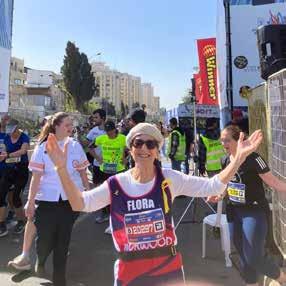
Michael Ben Baruch, Director, Israel Ministry of Tourism UK commented: “It was a tremendous success with strong participation from UK runners,” he said.
“The event showcases why Jerusalem continues to be such a compelling destination for British visitors seeking both spiritual connection and remarkable travel experiences.”
The UK contingent included Lord Leigh of Hurley, who ran the 10k event the day after his 66th birthday, raising money for the Jerusalem Foundation.
He commented: “It is very challenging as it is very hilly but fantastic that they close the city. There was a fantastic atmosphere, and it was
• Tax-efficient investing before and after Aliyah
• Tax-efficient income after 10-year tax-free period
• Receive your entire pension pot tax-free
• Specialist portfolio management for Olim
• No Inheritance Tax (for non-UK-situated assets)
We are seasoned experts in providing long-term financial planning advice for those making Aliyah. Scan the QR code to read more
With investing, your capital is at risk. Tax treatments are subject to individual circumstances and are subject to change.
good to see the Mayor coming personally to support us”.
Lydia Levy from Surrey raised money for the same foundation and ran in the half-marathon special event.
“The atmosphere at the start was very special, I have run a lot of marathons and half marathons, but this was different,” she said. “Everyone was relaxed and dancing along to the music, despite it having been an early, dark start. Running up to, through and around the old city was special as the sun was still coming up. The views down the Hinon Valley and from the old governor’s residence were spectacular.”
Flora Frank walked the half marathon in about three and a half hours.
“It was very moving, praying for the hostages still in captivity,” she said. “It is always an honour to support British Emunah.”
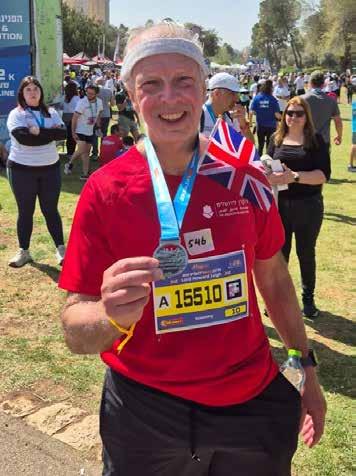
The event included the marathon (42.2 km), half-marathon (21.1 km), 10km
The
showcased 3,000 years of history in Jerusalem.
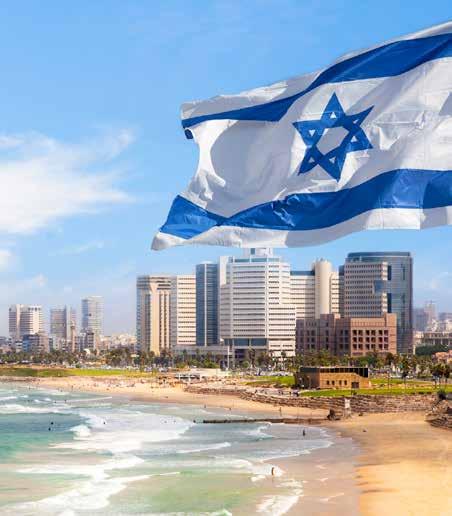
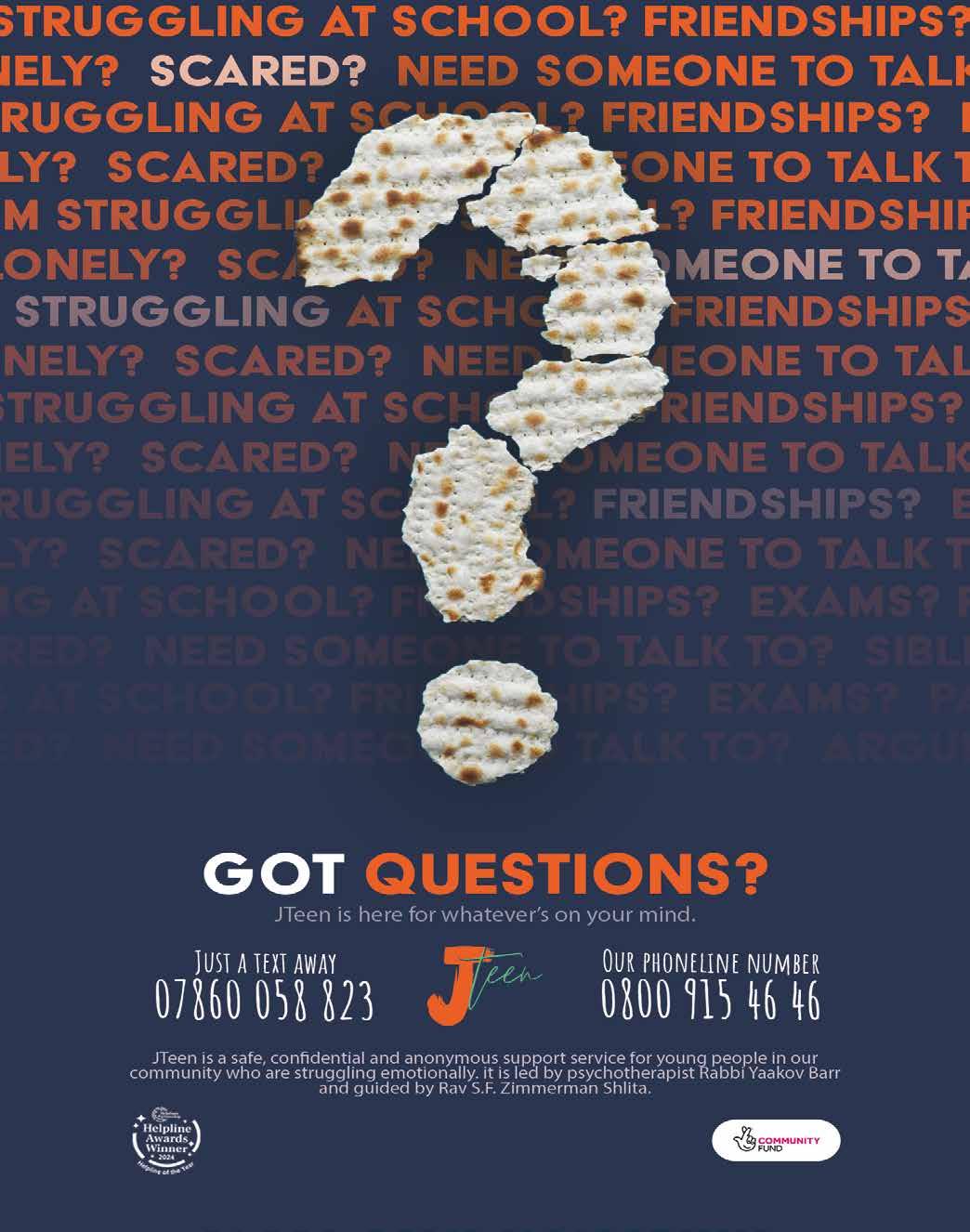
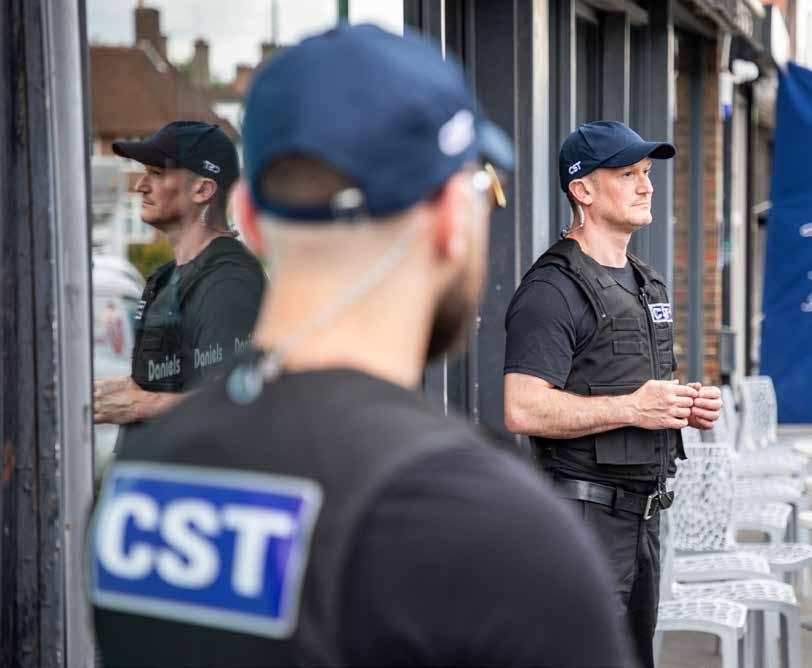
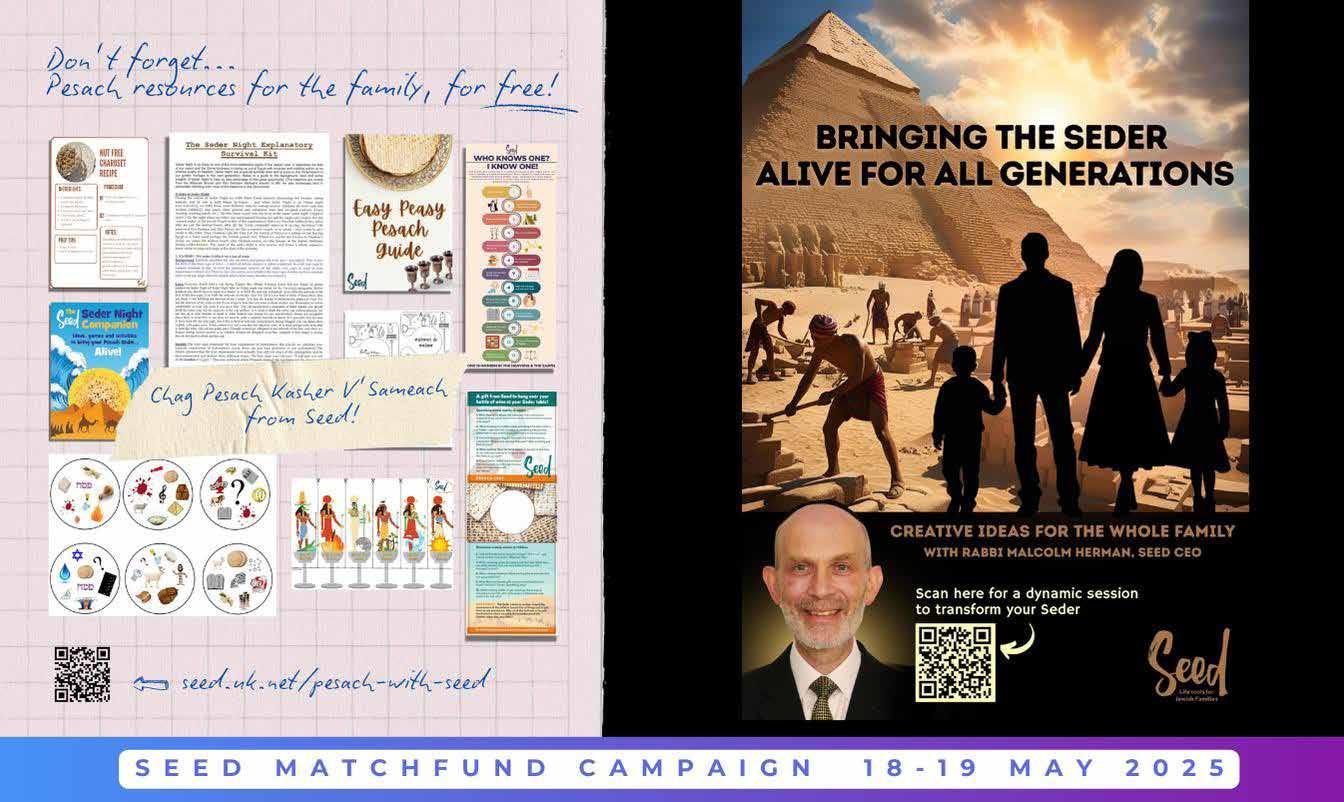
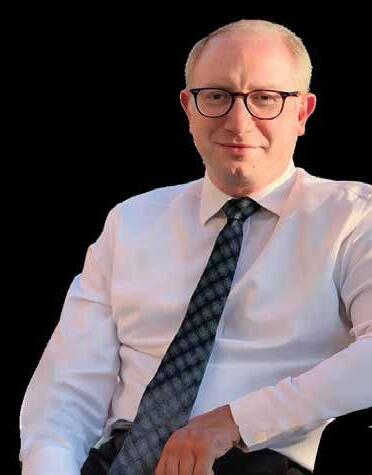


BY DAVID SAFFER
Opposition leader Kemi Badenoch and Jewish advocacy organisations have backed Israel deporting two Labour MPs back the UK last Saturday.
Bandeoch has been praised for supporting Israel. But Foreign Minister David Lammy’s criticism of the Tory chief has been condemned.
Israel’s UK embassy said the visit by Yuan Yang and Abtisam Mohamed, accompanied by two assistants, was intended to “provoke and harm” Israeli citizens and spread “falsehoods”.
Yang and Mohamed responded that they were “astounded” at Israel denying them visiting humanitarian aid projects in Judai and Samari during a parliamentary delegation.
Lammy described the diplomatic row as “unacceptable, counterproductive and deeply concerning”.
Badenoch, however, backed Israel controlling its borders, stressing the point on BBC’s Sunday with Laura Kuenssberg. She reiterated them on Sky News then LBC radio 24 hours later.
The government’s FCDO travel advice for Israel states that ‘foreign nationals can legally be refused entry if they have publicly called for a boycott of Israel’ or ‘belong to an organisation which has called for a boycott’.
“Those Labour MPs did not follow their own governments advice of not travelling to Israel,” Badenoch told LBC, adding that a previous Labour government had stopped an Israeli and Dutch
parliamentarian coming to Britain.
Lammy said it was “disgraceful” Badenoch was “cheerleading another country” detaining and deporting two British MPs. Lammy asked if Badenoch would say the same about Tory MPs banned from China.
She responded: “Unlike China, Israel is our ally and a democracy. A good Foreign Secretary would be able to make that distinction. Perhaps Labour MPs could put UK national interest first and do their jobs instead of campaigning for airports in Kashmir or promoting Hamas propaganda in parliament.”
The Israeli embassy defended its actions, stating the MPs had “accused Israel of false claims, were actively involved in promoting sanctions against Israeli ministers and supported campaigns aimed at boycotting the State of Israel”.
The embassy confirmed the MPs had declined an offer of accommodation and “chose not to exercise their right under Israeli law to petition the court to reconsider the decision”.
Israel covered the cost of the MPs return flights to the UK.
“The visit was intended to provoke anti-Israel activities at a time when Israel is at war and under attack on seven fronts,” the embassy explained in a statement. “Its purpose was to harm Israel and Israeli citizens and spread falsehoods about them. The State of Israel has both the authority and the duty to prevent the entry of individuals whose presence in the country is intended to cause harm to its citizens, just as such authority
exists in the United Kingdom.”
National Jewish Assembly managing director Steve Winston and Action Against Discrimination chairman Jonathan Metliss both said Israel had every right to deny the MPs entry.
“They were under false pretenses with the clear intention of spreading hatred and defaming the Jewish state,” noted Winston. “This is not a question of diplomatic protocol but of national security and principle.”
Winston added that Mohamed and Yang were not building bridges or engaging in goodfaith dialogue.
“They came to vilify Israel, amplify hostile propaganda and lend parliamentary legitimacy to the demonisation of the only democracy in the Middle East,” he observed.
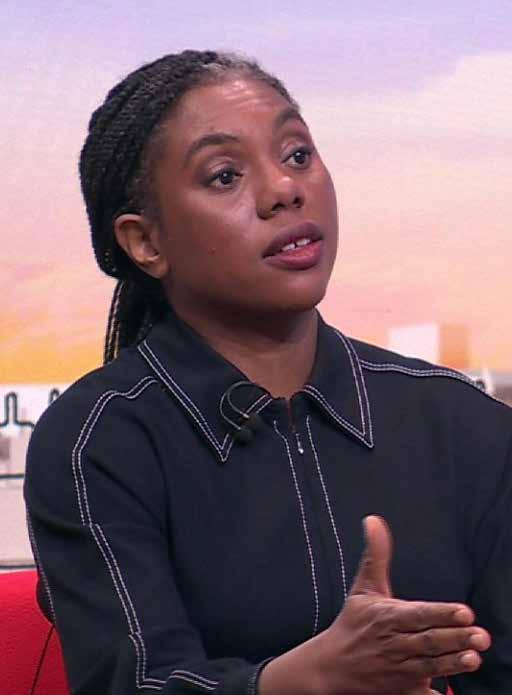
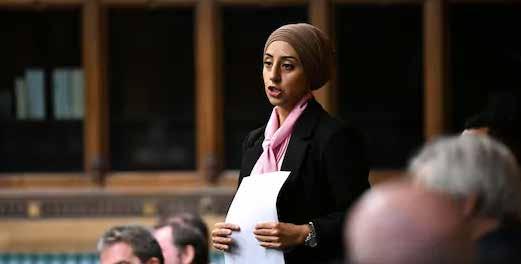
“It is telling that the British Foreign Office rushes to defend two MPs whose aim was not peace, but provocation, yet rarely musters the same urgency when it comes to securing the release of Israeli hostages or confronting the glorification of terror in our own streets.
“Israel is not obligated to host hostile delegations, it is entirely
reasonable to expect a sovereign state to protect itself from those who seek to harm it under the guise of diplomacy.”
Metliss added that Mohamed and Yang “spread lies and actively promote sanctions” against Israel.
He noted: “The two MPs should not be at all surprised the government is unsympathetic to the State of Israel in its war with Hamas. Lammy and his cohorts support the anti-Israel decision of the International Criminal Court and have stopped the supply of certain arm shipments to Israel.”
Metliss backed the Israeli Embassy, noting: “It is Israel’s responsibility to prevent the entry of such individuals as is the practice of the UK. The Labour party should not be complaining but unequivocally supporting Israel in its war against Hamas, an avowed terrorist organisation.”
Yang, who represents Earley and Woodley, and Mohamed, Sheffield Central MP, flew to Israel on a trip organised by the Council for Arab-British Understanding and Medical Aid for Palestinians.




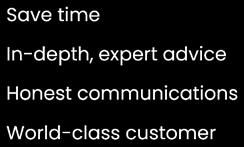









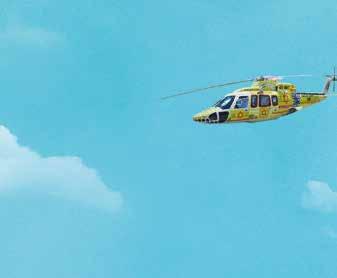
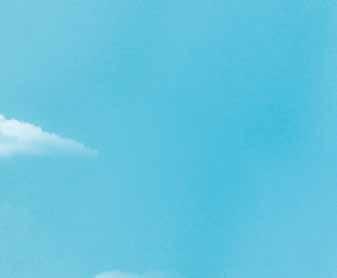

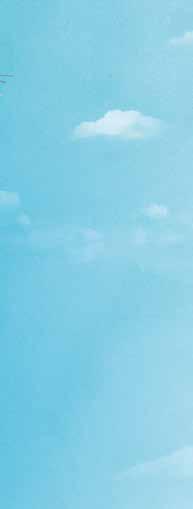

BY ADAM MOSES
President Isaac Herzog recognised Prime Minister of Albania, Edi Rama’s “steadfast support’ for Israel as he awarded him the Presidential Medal of Honour.
since the 10/7 terror attack and called on Jewish communities and allies to take “decisive action”.
It’s not just our air ambulances that save lives in the cloud












Our life-saving vehicles are doing their job on the happening in the cloud that is equally as important
to the lifesavers of the future.
This Pesach we are raising vital funds for next generation incident management and blood technology. A cloud-based platform that uses artificial intelligence through an integrated system. These developments will enable us to track every unit of blood collected, get to patients quicker, help with tele-medical care and even provide remote CPR. To save more lives, we need your support. To give today visit mdauk.org/cloud, call 020 8201 5900 or scan the QR code.







Herzog noted Rama’s courageous stance against antisemitism and enduring friendship with the Jewish people after presenting Israel’s highest accolade.
“This medal is awarded to individuals who illuminate the world with exceptional leadership, moral clarity, democratic values and an unbreakable friendship with the Jewish people and State of Israel.”
He added: “When the time came to turn words into action (after 10/7) you rose to the challenge with courage. In our darkest hour, after the horrific Hamas attack on Israel you refused to succumb to international pressure. You held fast to your moral compass, and expressed deep friendship and vital support for Israel.”
Herzog said the three pillars of Jewish tradition, justice, truth, and peace, defined Rama’ leadership and bond between the nations.
Rama said: “We do everything we can to be vocal on antisemitism, we have passed legislation and promoted Holocaust education in our schools.” He added: “In this particularly difficult moment, there are innocent people held in the dungeons of Hamas. Albania has always supported a two-state solution, but there is no solution while Hamas is around. Hamas is not a resistance movement. Hamas are the Nazis of the new century. History has taught us there is no compromise with Nazis.”
Herzog, in related news, recently hosted Jewish leaders and friends of Israel from around the world as part of Antisemitism Awareness Week.
A panel including Natan Sharansky and Conference of Presidents of Major American Jewish Organisations CEO William Daroff addressed delegates about the past 12 months.
“Jewish unity is not just an idea, it is a living, breathing force,” Herzog noted. “We feel it most deeply when we stand together and demand the immediate release of our hostages.”
Herzog addressed Ayelet Samerano, whose son Yonatan is held captive in Gaza.
“Ayelet, your courage is our courage,” he said. “Your pain is our pain. And your fight is our fight. We will not stop. We will not be silent until Yonatan and every one of our hostages are home.”
Herzog spoke about the surge in global antisemitism
“There is no circumstance and no equation in which negating the right of the Jewish people to live safely in their one and only nation-state is not antisemitism,” he observed. “To invalidate the existence of the singular Jewish national home, is to declare the world has no place for Jews. I say to you, Jewish leaders and activists fight back, don’t give up.”
He told delegates in his conclusion: “The State of Israel is your full partner, we are all in this battle.”
Herzog thanked President Donald Trump for acting against Columbia University for not protecting Jewish students from antisemitism on campus, and spoke about a renewed sense of Jewish pride.
“We have seen the Jews of October 8, those whose Jewish identity was not the predominant factor in their lives, declare with strength: ‘We are Jewish!’”, he noted.
Herzog called for continued unity in a battle for truth and justice.
“In our fight for the values of liberty and tolerance, our absolute commitment to one another is our greatest strength,” he said.
Minister for Diaspora Affairs and Combating Antisemitism, Amichai Chikli, said: “The establishment of the State of Israel did not end the ‘Jewish question.’ Religious and racial attacks have been replaced by an attack on our collective identity, Zionism.”
Chikli added: “The essence of antisemitism today is an attack on the Jewish people’s right to self-determination. Today, the State of Israel, which went to war in self-defense, following the massacres committed by Hamas on October 7, is accused of perpetrating genocide against the Palestinians in Gaza. There is no crime against humanity that Israel has not been accused of. This is the new face of the ancient blood libels.”
He concluded: “We don’t need a diplomatic struggle against antisemitism, we need a full-scale war. To fight antisemitism, we need courageous leadership and resolute action.”
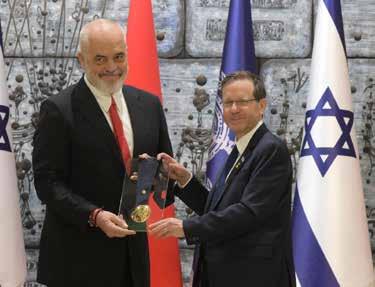
On Tuesday evening, the National Jewish Assembly (NJA) hosted a soldout event featuring two of the world’s foremost legal experts on antisemitism, international law, and the misuse of legal mechanisms against Israel. The event, titled An Evening with Anne Herzberg and Natasha Hausdorff: Exposing Lawfare Against Israel, drew a full-capacity crowd of nearly 200 guests for an urgent and insightful discussion on the legal battlegrounds shaping the global campaign against the Jewish state.
Anne Herzberg, Legal Advisor at NGO Monitor, and Natasha Hausdorff, Legal Director of UKLFI Charitable Trust, captivated the audience with their expert analysis of how international legal institutions, NGOs, and UN mechanisms are being weaponised in the service of demonising and delegitimising Israel. Both speakers highlighted recent developments in the International Criminal Court, the UN Human Rights Council, and civil society organisations that continue to blur the line between advocacy and ideological warfare.
Herzberg provided in-depth documentation on how politicised NGOs exploit the language of human rights to promote distorted narratives and apply double standards exclusively to Israel. Hausdorff laid bare the legal inconsistencies and
procedural flaws within international bodies and challenged the audience to consider the strategic implications of these campaigns for British Jews and supporters of Israel worldwide.
The event underscored the urgent need for the Jewish community and its allies to equip themselves with the legal knowledge and strategic tools to fight back against these deceptive and damaging narratives.
Speaking after the event, NJA Chairman Gary Mond stated: “We were delighted to host two such formidable experts. Lawfare is one of the most dangerous and insidious fronts in the ongoing campaign to delegitimise Israel. This event was a powerful reminder of why legal literacy and advocacy are essential weapons in our communal defence arsenal.”
The NJA looks forward to hosting more events of this calibre and continuing its mission to inform, equip, and defend the Jewish community.
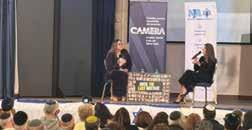
It has never been easy for Holocaust survivors to share detailed accounts of what they endured during the Shoah. The pain, the trauma, and the memories often remained locked away — not out of forgetfulness, but out of a desire to protect loved ones from the burden of their suffering.
On Wednesday, 23rd April, that silence will be broken. Stories — some never heard before — will be shared with our community. Survivors who have lived among us for decades, often choosing not to speak publicly about their past, are now having their testimonies told by their children and grandchildren. In many cases, these moving accounts have only come to light in recent years — sometimes even after the survivors have passed.
We ask you to stand together with the Manchester and Northwest Jewish communities in honouring these voices. This is a moment to listen, reflect, and ensure that their legacy is not forgotten.
Jewish Blind & Disabled are excited to announce our monthly Peer Support Groups for people with visual impairments.
Finchley
The second Thursday of each month 11.30am – 1.00pm
Borehamwood
The second Tuesday of each month 11.30am – 1.00pm
Sessions are designed for meeting new people and sharing experiences of living with sight loss in a safe environment. Family members, friends or carers are welcome to join.
To join a session or find out more information, please contact Toni Lewis on toni@jbd.org or 020 8371 6611 ext 620
In marking the 80th anniversary of the Holocaust, we especially encourage you to bring children aged 12 and above — so that the truth of the Holocaust continues to be passed from generation to generation. At a time when misinformation, anti-Semitism, and racial hatred are rising, the importance of remembrance has never been greater.
Join us — survivors, families, friends, and the wider community — as we come together to remember the victims and honour the resilience of those who lived.
Date: Wednesday, 23rd April
Time: 7:45pm
Location: Central Manchester (venue details to be shared with ticket holders closer to the date)
Tickets are free but must be reserved in advance: HTTPS://BUYTICKETS.AT/ YOMHASHOAHMANCHESTER/1402313
Let us gather as one. Let us remember. Let us never forget.
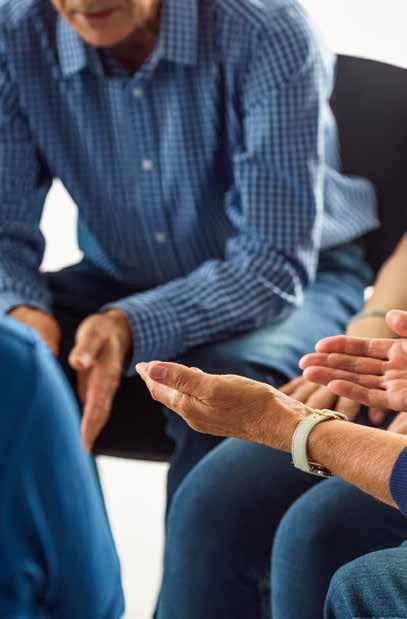
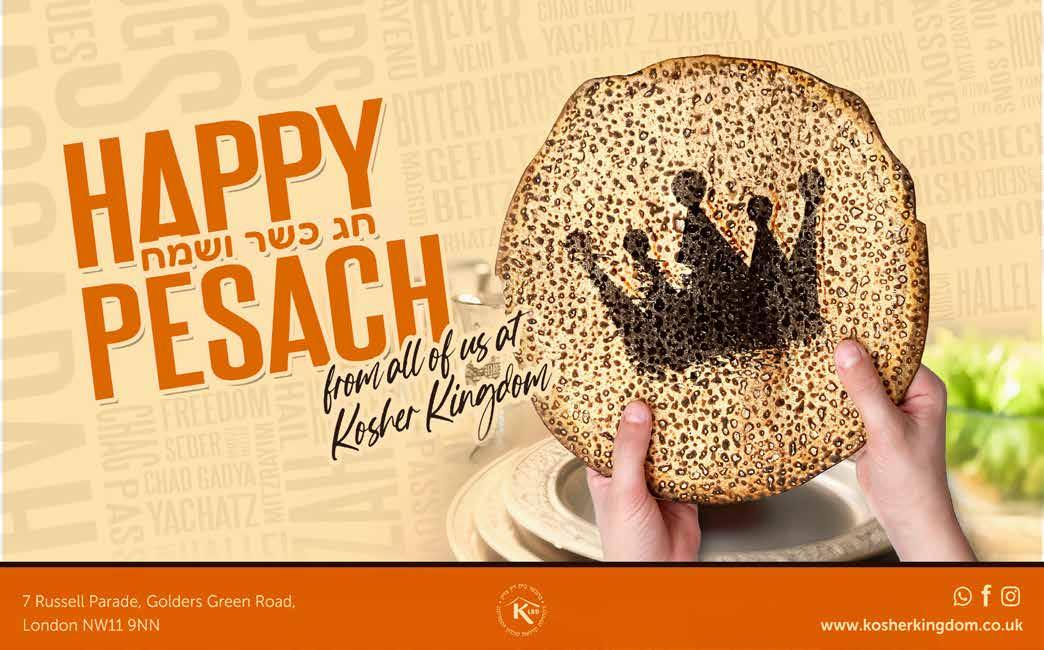
In 1939, Henry fled Germany and found safety in England, where he met the love of his life, Bobby. Together, they loved going to the Brenner Stepney Jewish Community Centre. After Bobby died, Henry continued to find comfort, connection, and a warm and caring Jewish community who understand his past.
“MY BAR MITZVAH IN 1937 IN NAZI GERMANY WAS NOT A HAPPY ONE. BUT MY SECOND BAR MITZVAH HERE AT THE CENTRE, 85 YEARS LATER, WAS ONE OF THE BEST DAYS OF MY LIFE.”

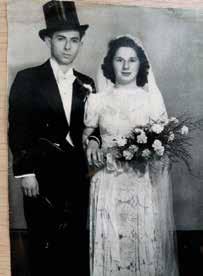

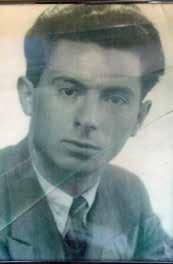
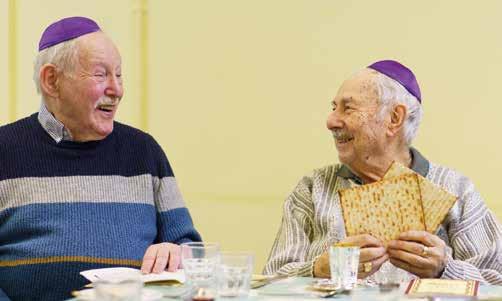
Norwood provides strength-based person-centred support to people with neurodiversity and neurodevelopmental disabilities, helping them to live life independently, build their confidence, and nurture meaningful experiences and improved relationships with their families and communities.
We support 186 adults in 15 residential and 11 supported living homes, all in community settings across London and Berkshire, one of whom is 24 year-old Eden. Eden’s mum Jill shared her family’s story with our supporters this Pesach, and how she first learned of Eden’s chromosomal disorder, after the paediatrician held her only son up to her at four days old and asked if anything about him looked odd to her. Diagnosis in hand, and having been informed it would result in a global developmental delay, Jill was told to take him home and love him, because she wouldn’t be able to do anything to improve his outcomes.
As a first-time mature mum, Jill told us she often felt “isolated” from her family and peers, an”. d “it got harder as Eden grew older and his differences became more apparent”. But that changed, when a family member suggested Norwood and Jill first accessed our Rainbow family support group when Eden was 2 1/2,
where Jill met a cohort of parents facing similar circumstances to hers. Eden later began attending short breaks services, where for the first time she “felt confident to safely leave him and have a few hours to myself”, in the knowledge that he was being well supported.
Eden and Jill continued to receive Norwood’s support, advice and advocacy throughout Eden’s childhood and adolescence, supporting him through the many transitions into adulthood and enabling Jill to access the best support to meet Eden’s needs. Working in partnerships with other agencies, Norwood “social workers advocated for Eden and were my voice when the Commissioners wouldn’t listen to me, ensuring he received the right support”, which in Eden’s case meant attending a residential school, from where he was able to travel home to spend the holidays with his family. It was always important to Jill that Eden had a strong sense of family and community.
And once he completed his schooling aged 19, Jill once again turned to Norwood for transition services to help prepare the family for Eden’s next steps, identifying the best options for him to help him fulfil his living and leisure goals as he moved into adulthood.
Eden moved into his Norwood home
in February 2023, where, having just celebrated his second anniversary as part of a warm community, Jill has “watched him grow from a boy into a man”. Despite being non-verbal, double incontinent and epileptic Eden enjoys going out for walks, swimming, and trampolining. With support, he’s been able to thrive in a safe environment suitable for his needs, and Jill no longer worries about his future.
All our residents receive support according to their needs, where they can enjoy being part of a community. Each of our homes offers a loving, warm, supportive environment where Jewish values are at the heart of daily life. Our person-centred, specialist support enables people to live life on their own terms.
“I ask anyone I meet who has a child with additional needs ‘have you tried Norwood?’,” says Jill, and we know how much families with and without a diagnosis depend on us for needs- and strengths-based
support. You can read more about Jill and Eden’s story, and the impact of the support they received from Norwood, and make a donation to allow us to step to support other families like them at Norwood.org. uk/pesach
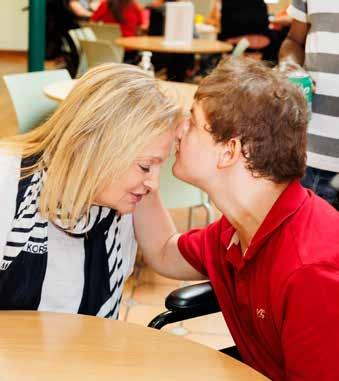
There was never a choice. It was always Jewish Care”
For 13-year-old Evie Yershon, choosing a charity to support as part of her Bat Mitzvah project was never in question. Jewish Care has been part of her family’s life for generations, and when she decided to take on a 13-kilometre charity run, she knew exactly who she wanted to fundraise for.
Evie, a dedicated Arsenal fan, combined her love of sport with her commitment to Jewish Care by running at Emirates Stadium, raising an incredible £3,724 in the process.
Evie shares, “Jewish Care is a charity close to my heart.”
Her connection to the charity is deeply personal. Evie’s grandmother, Pam Hubert, was living at Jewish Care’s Rosetrees care home at The Betty and Asher Loftus Centre in Friern Barnet and sadly passed away last year. She was a devoted mother to her three daughters Sasha, Natalie and Sophie, and was a doting grandmother to Evie and Elsie. Recently, the family grew with the arrival of Natalie’s daughter, Mia, who is now six months old. Evie cherished visiting her Nana at Rosetrees, and she saw firsthand the care, compassion and dedication of the Jewish Care team. She shares, “I used to visit her all the time.
“The love, care, dedication and support of the Jewish Care team was evident every time I went to see Nana. That’s why
I wanted to raise money for Jewish Care.”
Evie’s mum, Sophie, stressed this sentiment, sharing how wonderful the staff were to the whole family during her mother’s time at Rosetrees:
“They always remembered us and made the effort to know each of us personally.”
Evie’s commitment to giving back and helping to ensure that others at Jewish Care receive the same kindness and care is admirable. Her family’s ties to Jewish Care run even deeper. Evie’s grandfather, Keith Hubert, who used to attend the Memory Way Café with Pam for many years. At Jewish Care’s Memory Way Cafés, they enjoyed tea and cake whilst connecting and reminiscing at the stimulating groups with other members of the community who are living with dementia and their
family carers. Keith still volunteers at the Memory Way Café at Jewish Care’s Maurice and Vivienne Wohl Campus, every other Monday.
Keith shares, “We were involved with Jewish Care long before my wife moved to Rosetrees. My mother-in-law was cared for at Jewish Care’s Kay Court and then moved to Jewish Care’s Princess Alexandra Home (now Anita Dorfman House care home at Sandringham) So, when Pam needed support, I wanted her to live in one of Jewish Care’s homes, just like her mother.”
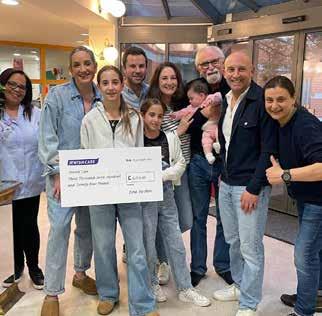
When Evie told her grandfather about her fundraising plans, he was moved.
“I thought, wow, that’s lovely.” Evie’s father, Russ Yershon, explains his connection to the charity went back a long way too, saying, “Redbridge was my
community growing up.”
Russ was a part of Jewish Care’s local community in Redbridge and attended the Redbridge Jewish Youth and Community Centre, which later became part of Jewish Care.
For Evie, her challenge was not just about raising money, it was about honouring her grandmother’s memory. Characteristically calm, Evie put it simply:
“I love football but running 13 kilometres for my 13th birthday just made sense. And, as an Arsenal fan, running at Emirates Stadium was an amazing experience.”
Ellisa Estrin, Jewish Care Director of Fundraising & Marketing shares,
“It is incredible how Evie has managed to weave two of her passions together to honour her Nana. Evie’s efforts will help Jewish Care continue to provide essential care and support to older members of the community and we are so grateful to Evie for going the extra mile to raise funds for charity to mark her Bat Mitzvah in this meaningful and personal way.”
If you would like to find out about celebrating with Simcha with Jewish Care call: 0208 922 2600 or email celebrate@ jcare.org or visit Celebrate with Jewish Care - Jewish Care
To register interest or for more information about MIKE Redbridge or Stanmore/ Bushey for young people, email youthservices@jcare.org or call us on 07391 738 281.
#WeAreNorwood
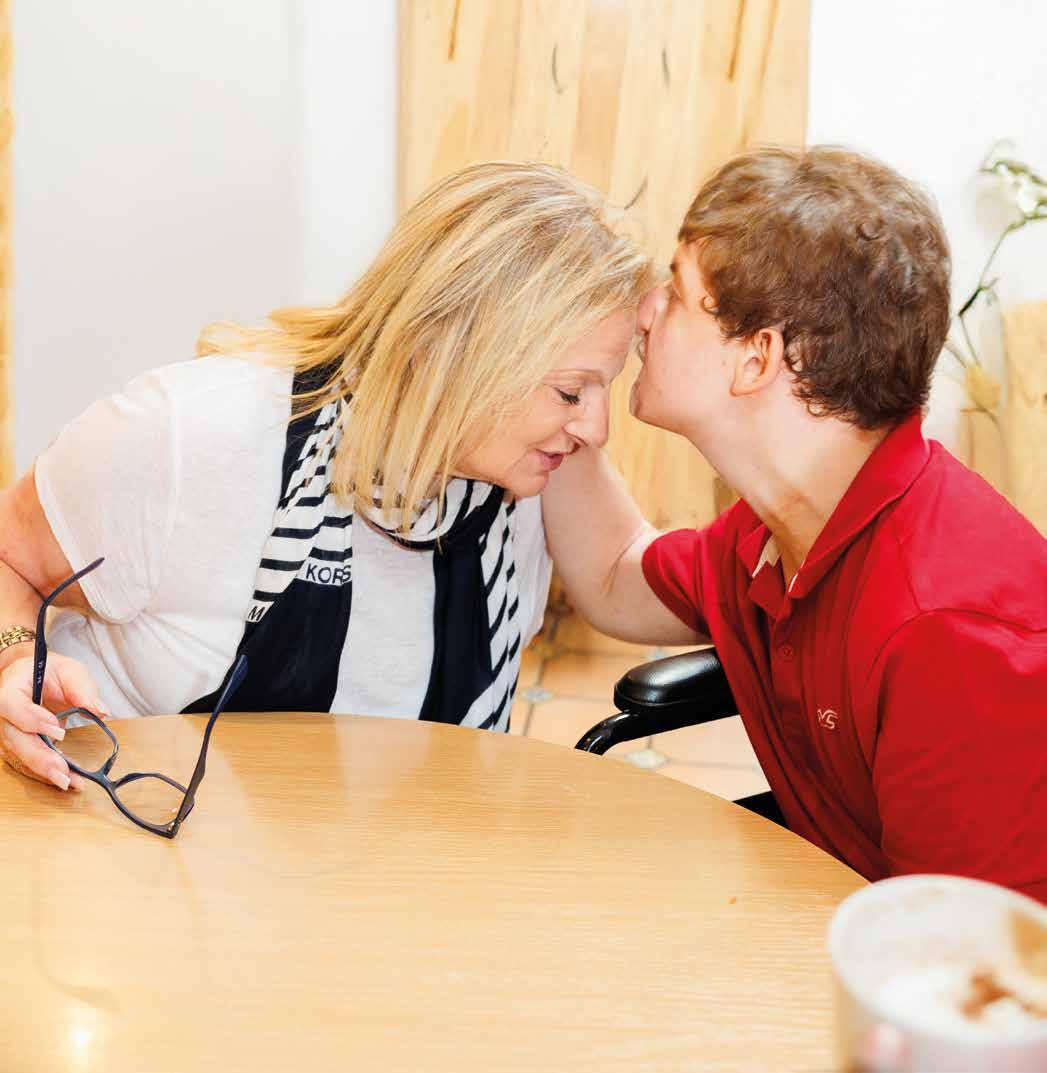

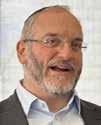
BY RABBI NAFTALI SCHIFF
If there’s one thing that unites Jews across the globe and throughout generations, it’s that we don’t just remember with our minds, we remember with our mouths. For us, food has never been just about nourishment or pleasure. It carries within it our history, our identity and our journey. And on Pesach, perhaps more than at any other time of the year, food becomes the primary medium through which we relive and transmit the story of our people.
Each year, as we gather around our Seder tables, we are not simply commemorating the Exodus from Egypt as a distant historical event. We are stepping back into that story and living it anew. The sharp bitterness of the maror, the dry crunch of the matzah, the warmth and comfort of the soup and kneidlach, these aren’t just items on a menu. They are flavours that stir our souls, each one evoking something deeper, and timeless.
Through these foods, we awaken within ourselves a connection to our ancestors and to the millions of Jews throughout history who have sat at their own Seder tables, reliving the same journey from slavery to freedom.
What’s so powerful is that, while we all follow the same script, every family brings its own unique flavour, literally and figuratively, to the Seder experience. One family might swear by a charoset recipe handed down from a grandmother in Aleppo, rich with dates and spices, while another won’t begin the meal until the youngest grandchild sings Ma Nishtana in the exact tune their great-grandfather once used. These aren’t just sentimental touches. They are acts of preservation. They are how we pass down not just laws and customs, but feeling, memory and belonging. In these small details, family becomes the vehicle through which our national story remains vibrant and real.
All of this takes on even greater significance in the world we live in today, where choice is endless and individual preference is everything. Go into any shop and you’ll find shelves lined with every
imaginable variation of every product. There is a flavour, a version, a substitute for every taste and every dietary need. Whether you want something low-carb, gluten-free, vegan, spicy, sweet, or something that claims to be all of the above, it’s there, waiting for you.
And then comes Pesach. And at the heart of it, matzah.
Plain, unadorned and not especially tasty. Just flour and water, mixed and baked with urgency. In a world driven by variety and excess, matzah stands as the simplest of foods, and yet it holds the deepest of meanings. Matzah is the bread of emunah. It doesn’t cater to our cravings, rather it reminds us of our roots. It takes us back to that moment when our ancestors had no time to prepare, when they followed Hashem into the unknown with nothing but trust in their hearts. In its stark simplicity, matzah preserves our identity and reconnects us to the essence of who we are.
This understanding was at the heart of why we launched Taamim at Jewish Futures. The word “taamim” means flavours, but it also means meanings,

BY ROBERT FESTENSTEIN
Pesach is almost upon us, or is here already, depending on how much preparatory work you are doing. This is a time of celebration, of freedom from slavery and the start of the journey to the land of Israel.
For some of our brethren, sadly they remain in captivity in Gaza. Their fate remains unknown and their captors
continue to taunt us all as to whether they will be released or even if they are still alive. We have it seems two obligations. One is to make sure the outside world knows that this particular war crime is still in play. The other is for us in our communities to do the same.
There can be no compromise over the release of the hostages, yet when some commentators in the Jewish community write or speak about this, they include references to peace negotiations and a two state solution. Frankly this is nonsense. I cannot see how the release of
hostages taken in a criminal act is related at all to anything other than when is this going to take place. It is a stand-alone requirement. Trying to attach other matters to their release is not only unhelpful it is disrespectful.
I have said before and repeat, that the two state solution is dead. It has been for years. Those who continue to plead for it cannot see the reality before their eyes. There has been no great movement in Gaza demanding peace with Israel. The demands there have been for the end of the conflict which has resulted in the destruction of much of Gaza and the loss of many civilian lives. The responsibility for this lies clearly at Hamas’s door. From the outset a cease fire would have been perfectly possible if Hamas had stopped attacking Israel. It was no more complicated than that.
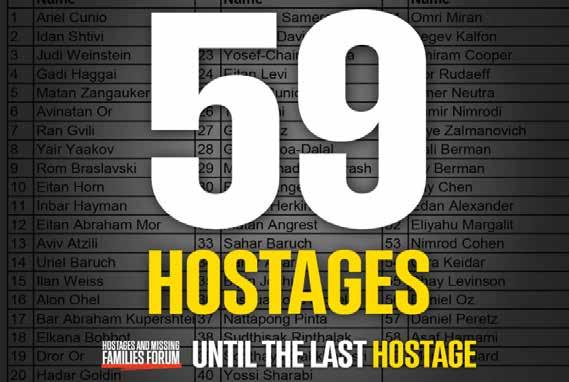
because in Judaism, the two are inseparable. Taamim is about reaching people through the most accessible, universal medium we have: food. We have seen how a single taste can bring back a childhood memory, how the smell of a familiar dish can open up conversations, how a shared meal can become the spark for a renewed connection to heritage and identity.
So this Pesach, as we sit around our tables, surrounded by food that is rich in flavour and tradition, let us take a moment to truly appreciate what we’re doing. We are not just eating, we are transmitting, we are remembering. We are giving our children and grandchildren not only a taste of Jewish history, but a sense of pride, belonging, and continuity.
Wishing you and your families a Chag Kasher VeSameach, filled with meaning, memory and the enduring taste of freedom.
Rabbi Naftali Schiff is the Founder and Chief Executive of Jewish Futures
As far as the hostages are concerned, it remains simple. Release them, or in the terms of the forthcoming festival, let our people go. Once this happens, then it is sensible to try and reach some sort of agreement. The harsh reality is that it is going to be very difficult. We are not talking about the sort of agreement that often happens post conflict, which might involve an exchange of land and some other condition. Access to water or other natural resources can be traded as part of any agreement. The problem with Hamas, the Palestinian
Authority and their acolytes abroad is that they hate Jews and loathe Israel. When we left Egypt it was pretty straightforward. Get away from the Pharoah, cross the Reed Sea and trundle on towards Canaan. Now though we are there. In the land of Israel. We are home and it is our enemies who are trying to drive us from here. This is not about land, despite what is claimed. The idea that all that needs to be done is for Israel to leave the occupied Palestinian territories and all would be well has been tragically shown to be completely false. When the Israelis left Gaza, I hoped that this would be a first bold step towards peace and some form of accommodation. I was proved wrong there.
Even when Hamas took over I thought that if there was a stable Government in Gaza it meant there could be some meaningful negotiations. I was proved wrong again, seriously so.
For me Pesach is personal. Our release from slavery then means we can enjoy our freedoms now. I firmly believe the two are connected. For as long as the hostages remain in captivity my freedoms are less enjoyable. As I said at the beginning, let my people go.
Robert Festenstein is a practising solicitor and has been the principal of his Salford based firm for over 20 years. He has fought BDS motions to the Court of Appeal and is President of the Zionist Central Council in Manchester which serves to protect and defend the democratic State of Israel
More than 200 philanthropic, business, and professional leaders gathered at the Tower of London to support Hadassah Hospitals in Jerusalem. Hosted by Hadassah UK in collaboration with Hadassah International, the event highlighted the urgent medical needs following recent conflicts.
Rona-Lee Shimon, Hadassah Global Ambassador, opened the evening by reflecting on Hadassah’s enduring legacy. David Waterman, Chair of Hadassah
UK, described the event as “a powerful reminder of resilience and healing. Hosting this event at such an iconic venue deepened our collective commitment to the incredible work of Hadassah.”
The Gandel Rehabilitation Center (GRC) at Hadassah’s Mount Scopus Campus was a central focus. Partially operational since October 7, the facility has already provided essential care to hundreds of patients. Dr. Manno “Micky” Saks, President of Hadassah

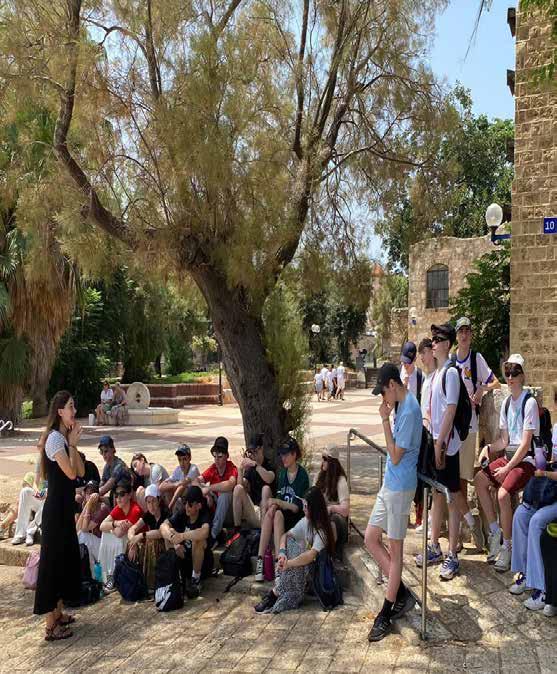
International, said, “Sir Liam Fox reminded us of our collective responsibility for shaping history. Nobody exemplifies that better than John and Pauline Gandel, whose timely action has been critical to Israel’s resilience.”
John Gandel, reflecting on their 2019 funding to address Israel’s rehabilitation bed shortage, shared: “We couldn’t have imagined the challenges of today. But we are incredibly proud that we chose this project, which is now saving lives and helping people rebuild their futures.”
An emotional highlight was Yonatan “Yonti” Bahat, a 48-year-old survivor of severe injuries. “As I lay there, all I could think about was that my children would grow up without a father,” he shared.
After months of rehabilitation at the GRC, Yonti stood before the audience as walking proof of Hadassah’s transformative care. “Now I can be the father my children deserve.”
Dalia Itzik, Chair of the Hadassah Medical Organisation, stressed the urgency of completing the GRC: “With only three of eight floors operational, we face monthslong waiting lists. The need to finish this project is more pressing than ever.”
The Tower of London, with its profound ties to Jewish history, resonated deeply with attendees. Rabbi Mendel
Cohen of St. John’s Wood Synagogue offered a moving prayer, acknowledging our shared history, compassion, and unity. The illuminated White Tower, bearing Hadassah’s logo and the theme “Feel History, Make History,” symbolised the event’s significance. Jorge Diener, Executive Director of Hadassah International, said, “This evening united global leaders in such a historic venue, underscoring our shared mission to ensure world-class healthcare for Israel.”
Carol Ann Schwartz, head of the Hadassah Women’s Zionist Organisation of America, and Rob Taub, Executive Director of Hadassah UK, both praised the solidarity and generosity shown by the attendees. “The UK’s Jewish community has played a vital role in supporting Hadassah’s mission, ensuring we can continue to provide care when it’s needed most,” said Taub.
The evening concluded with a stirring performance by Israeli singer Achinoam “Noa” Nini, who sang “Beautiful That Way” from Life is Beautiful—a poignant reminder of how hope and unity can shine through even in the darkest moments.
To help support the completion of the Gandel Rehabilitation Center, visit https://hadassahuk.org
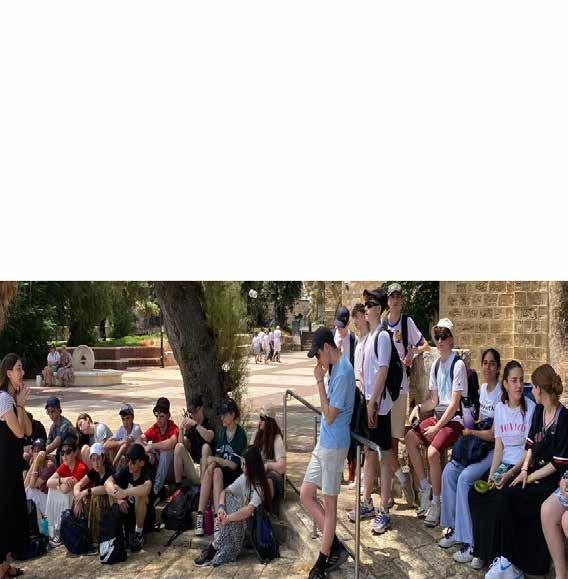
The UJIA Gap Year Scholars Programme will make a meritbased contribution to the young leaders of tomorrow, covering up to half of the costs.
To find out more visit ujia.org/gap-year-scholars IF YOU’RE INVESTED IN YOUR COMMUNITY, YOUR FUTURE AND CONNECTION WITH ISRAEL, SO ARE WE.
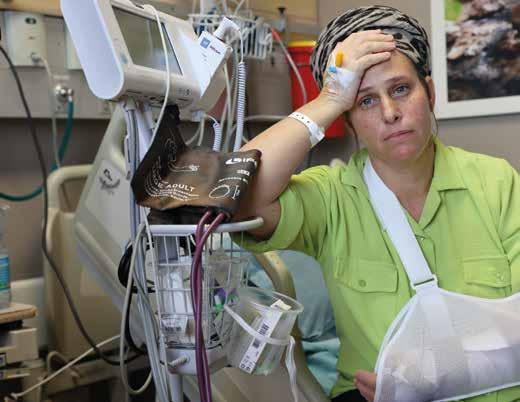








I am a independent broker acting solely on your behalf
• I sell through many different auction houses, high-end dealers, collectors and private clients
• Having been in business for over 10 years looking after many, many clients you will always receive my personal discreet one-to-one service (references available)
• There is no cost or obligation meeting with me at your home or storage facility
• Probate valuations carried out
• Based in St Johns Wood, clients in the UK and Europe


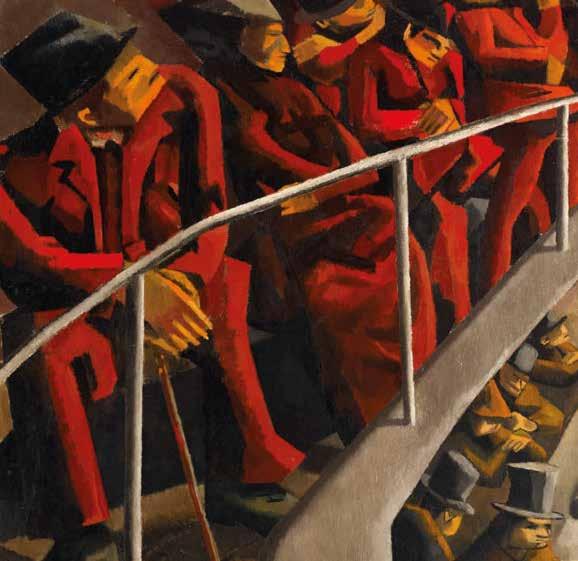
Ben Uri proudly represents the community within Britain’s mainstream museum sector. Benuri.org and Buru.org.uk are now Europe’s leading research portals on the Jewish, Refugee and wide Immigrant contribution to British visual culture since 1900.
400+ Research papers, essays, catalogues and PhD theses
600+ Archive exhibitions records
900+ Collection artworks on benuricollection.org.uk
3300+ Reseach Unit profiles on buru.org.uk / diaspora-artists.net
10,000 Pages of archives from 1915 Benuri.org & Buru.org.uk open 24/7 to suit you.
Gallery exhibitions open every Wednesday to Friday at Boundary Road, London NW8.
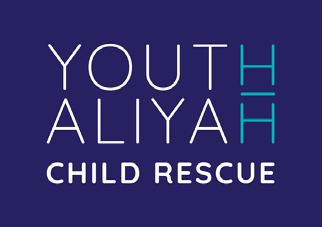
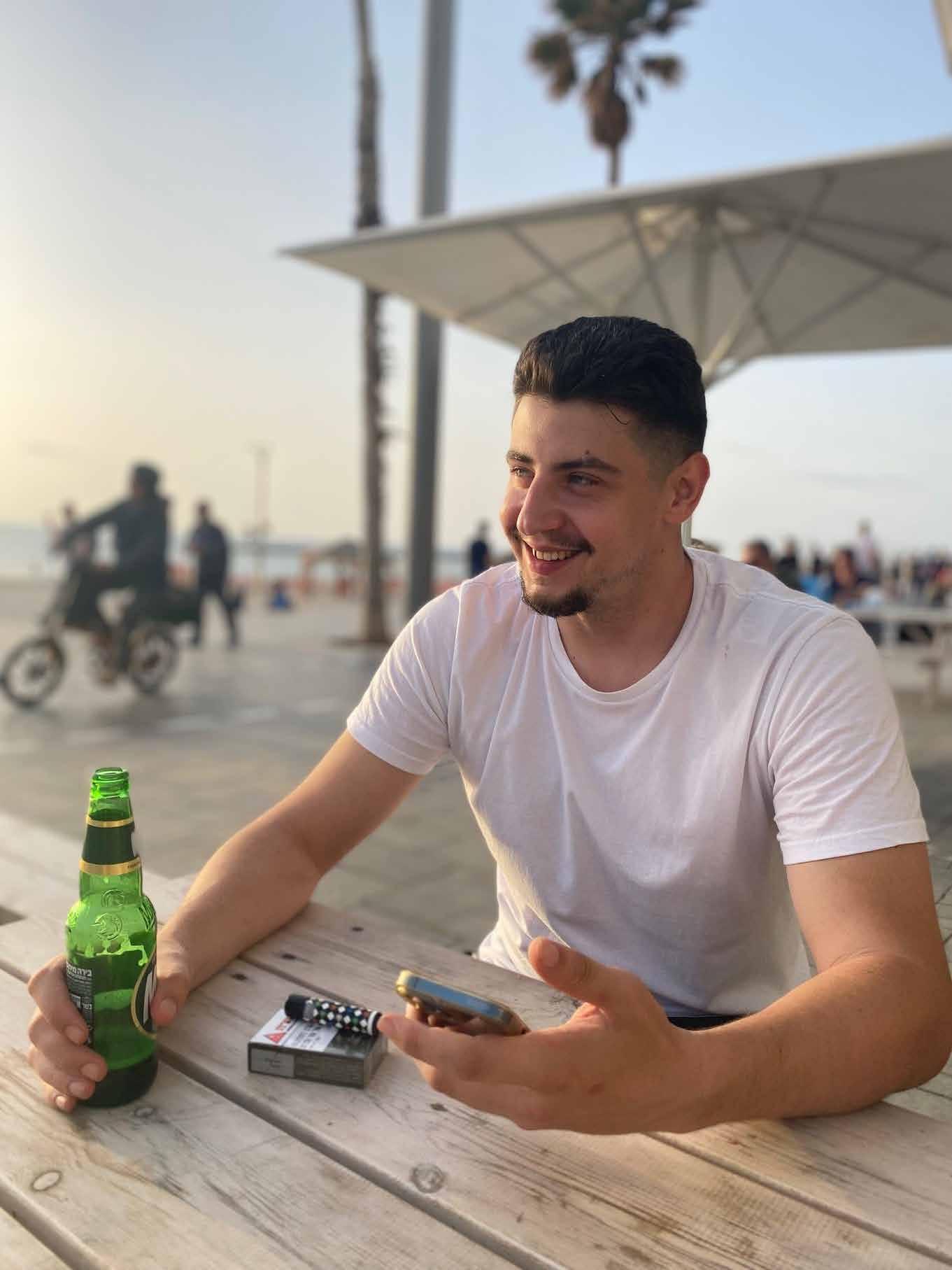
We have established the Jake Marlowe Memorial Scholarship to honour British born Jake, who was tragically murdered while working in security at the Nova Festival on 7 October.
Please help us to fully endow the Jake Marlowe Memorial Scholarship, so that it can be given to a worthy recipient every year
Youth Aliyah Child Rescue cares for thousands of at-risk children in our five Youth Villages in Israel. The first recipient, Ethiopian Israeli Awaka Melisa, has overcome profound adversity and now looks forward to a brighter future, thanks to this scholarship.
He is pictured below with Jake’s incredible parents, Lisa and Michael Marlowe.

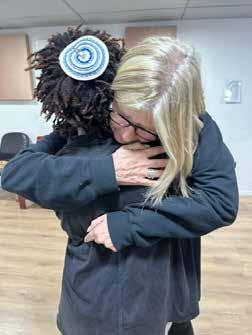


BY RABBI AVROHOM ZEIDMAN
This is the poor bread that our fathers ate in the land of Egypt.
Whoever is hungry, let him come and eat; whoever is in need, come have Seder with us.
This year we are here; next year in the land of Israel. This year we are slaves; next year we will be free people.
The Rambam writes (Hilchos Yom Tov 6:18) something interesting about celebrating Yom Tov: if you feast without sharing with others, you’re basically just filling your belly, not really celebrating. True celebration—real “simchas Yom Tov”—is when you bring happiness to someone else, especially those who have less than you.
It makes sense then, that we start the Seder by saying,
Therefore it makes sense to begin our Seder:
‘Whoever is hungry (i.e. lacking physical needs) let him come and eat.
Whoever is in need (i.e. one who is lonely, lacking emotional needs) come have Seder with us.’
But why specifically Pesach?
When we were in Egypt, we transformed from separate families into a unified nation. Initially, everyone was ותיבו שיא each family for itself. By the time Hashem told Moshe it was time to leave, we had become one םע—one nation. The word םע means ‘nation,’ but it also means ‘with’— as in togetherness. Caring for each other is what makes us strong.

But maybe we haven’t fully learned this lesson yet. Real freedom isn’t just escaping slavery; it’s being able to think beyond ourselves. Abraham Maslow described this idea in his famous “Hierarchy of Needs.” At the bottom, we’re stuck focusing on survival—food and shelter. Only once we’re secure can we genuinely care for others. The ability to give is the ultimate proof of freedom. Until we share willingly, we’re still slaves to our own self-interest.
On the global stage today, there’s a growing sense that prioritising ourselves above others makes us safer and more secure. Yet ironically,
For Deena, freedom means independence. From a joyful toddler at our nursery, to further education and now thriving in Supported Living, Kisharon Langdon has been with her every step of the way. With our support, she’s built a life filled with confidence, friendships and fulfilment.
But we need your help to raise £4.5 million each year, just to keep our services running.
Donate today to help others like Deena on their journey of a lifetime. Scan the QR code below, visit kisharonlangdon.org.uk/pesach or call 020 3209 1187
Scan the QR code to donate
this outlook traps us, keeping us enslaved by our own fears and anxieties, rather than leading to true freedom.
That’s why our Seder invitation acknowledges, “This year we are slaves; next year we will be free.” We admit we’re still slaves to ourselves, and we express our hope that by giving to others, we’ll achieve true freedom. אינע
is the bread of poverty”—isn’t just about remembering past slavery; it’s a call to action today. By opening our homes, tables, and hearts, we move closer to real freedom.
Rabbi Zeidman is an experienced educator of young people, young professionals and parents. Having worked for SEED and United Synagogue, Rabbi Zeidman is now the Senior Educator at GIFT UK, where he has created an entire curriculum based around educating the next generation of givers, which the GIFT Education team teach in over 30 schools.
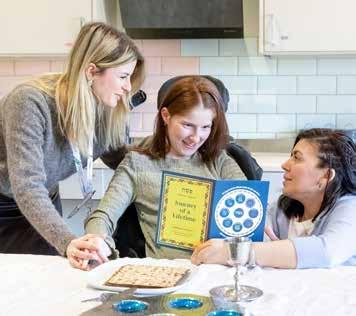


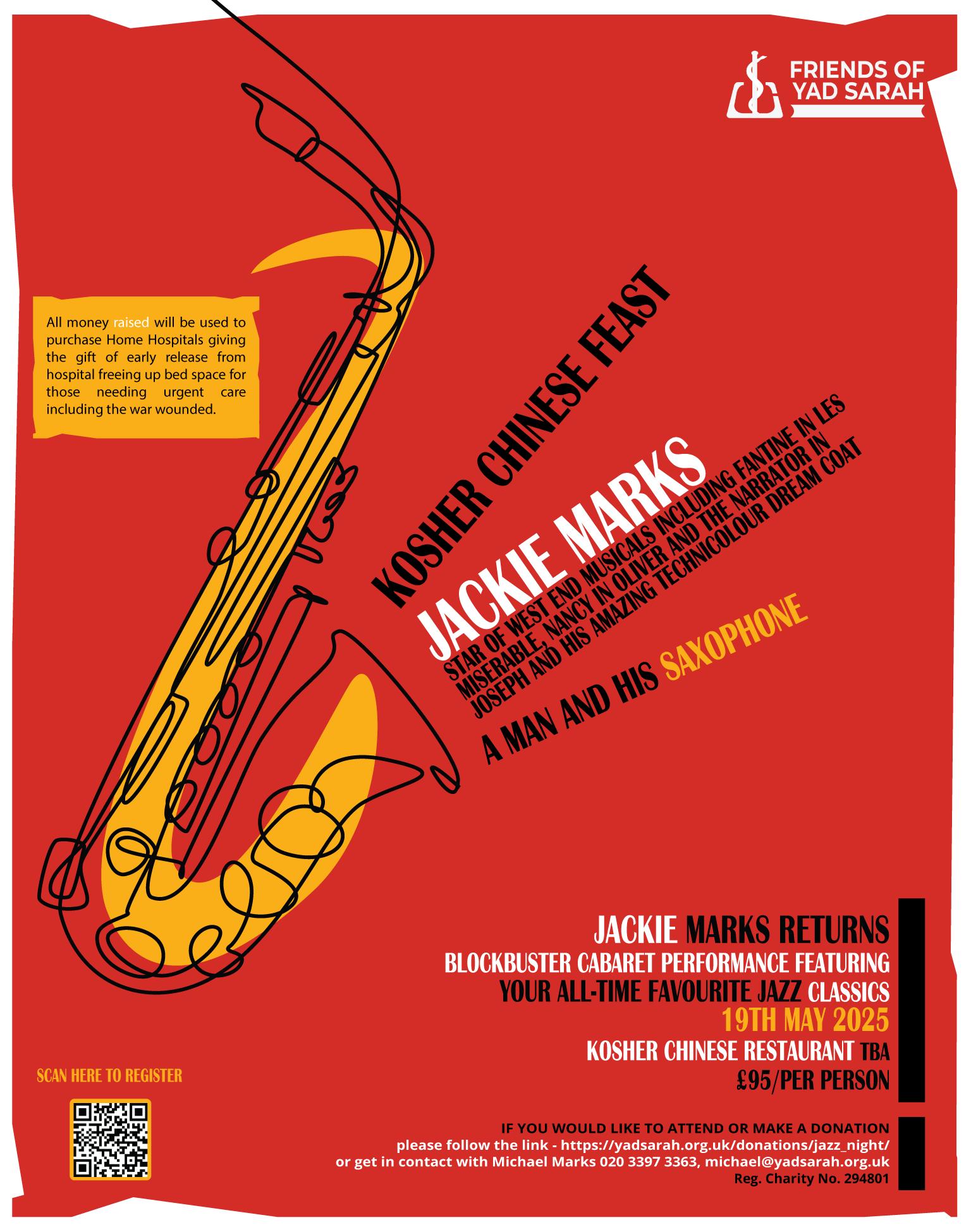

The National Jewish Assembly (NJA) supports Israel’s decision to deny entry to British MPs Yuan Yang and Abtisam Mohamed, who were stopped at Ben-Gurion Airport after reportedly misrepresenting the nature of their visit and expressing intent to engage in anti-Israel activities.
Despite claims by the MPs and Foreign Secretary David Lammy that this was a “parliamentary delegation,” the Israeli authorities were clear that no official coordination had taken place and that the group had falsely claimed official status. Upon questioning, both MPs allegedly revealed that their purpose was to “document Israeli security forces” and disseminate hostile rhetoric—clear political activism, not diplomacy.
This is not a free speech issue. It is a matter of national security and the sovereign right of a democratic country to deny entry to individuals, regardless of rank or title, who seek to delegitimise it on the world stage. Israel is under no obligation to welcome those who aim to distort its actions and fuel international hostility, especially at a time of conflict and surging antisemitism.
NJA Managing Director Steve Winston said: “Israel does not exist to serve as a

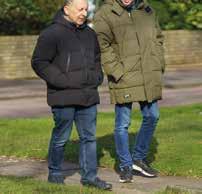
backdrop for foreign politicians looking to score points with radicalised factions in their own parties. If MPs arrive with the sole aim of vilifying the Jewish state and advancing hostile propaganda, they should expect to be shown the door. Israel has every right to protect itself - not just from rockets, but from reputational assault disguised as parliamentary mission work. Instead of lecturing Israel, David Lammy should be asking why British MPs are engaging in political stunts rather than helping to bring home the hostages or address the tsunami of antisemitism sweeping the UK.”
At a time when British Jews are targeted in record numbers, and when terrorism is still glorified by some public figures, the NJA urges the UK government to take a firmer stand in support of its democratic ally, not criticise it for exercising basic prudence.
Let’s ensure every deaf child in our community can achieve their full potential and lead the great lives they deserve.
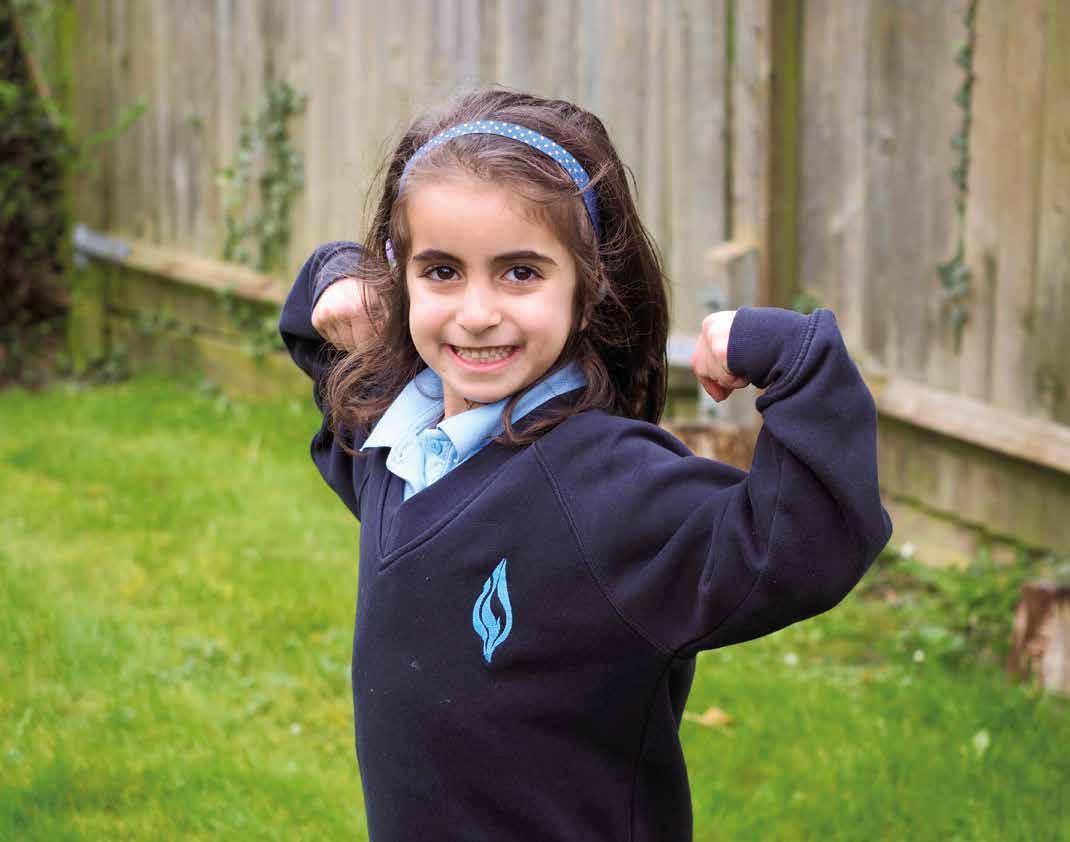
“I’m Emily, and I’m 6 years, 3 months and two weeks old!
I’m the only deaf child in my school and it’s a big struggle. I come home really tired.
Mummy says it’s because I don’t want to do my homework, but that’s not right. It’s because I have to work extra hard to hear my teacher as my classroom is so noisy and echoey, especially when it rains.
Mummy told me there are things called acoustic clouds which could hang above me in class and help me to hear better at school. And they can come with me when I move classrooms. That’s so exciting – my very own clouds!
Soon, I’ll be able to hear my teacher, be top of the class and when I grow up I will write books for children just like me.”
Please help us to buy Emily’s clouds this Pesach! Let’s ensure that she, and every Jewish deaf child, can flourish at school.
To donate scan the QR code, visit jdeaf.org.uk or call 020 8446 0502 Thank you x
The Israel Guide Dog Centre UK is delighted to announce the appointment of Karen Brosh as its new Executive Director, following the conclusion of the interim leadership provided by Hazel Kaye. Hazel stepped into the role following the tragic passing 15 months ago of our beloved previous Executive Director, Martin Segal z”l. We are incredibly grateful to Hazel for her dedication and leadership during such a challenging time and for her help in recruiting Karen to the role, who we know will be as caring and as passionate an advocate for this very special charity as was Hazel and Martin before her.
Karen brings with her over a decade of experience in the charity sector and a rich background that blends her early career in the entertainment industry with a strong focus on fundraising, marketing, and organisational development. She joins the Israel Guide Dog Centre UK having recently been Development Director at the London School of Jewish
Studies (LSJS), where she played a pivotal role in shaping the school’s fundraising and marketing strategy over the past five years. With a deep commitment to the charity sector and a passion for community-driven initiatives, Karen is excited to lead the Israel Guide Dog Centre UK into its next chapter.
“We are thrilled to welcome Karen as our new Executive Director,” said Jon Benjamin, Chair of the Board of Trustees.
“Her wealth of experience, strategic vision, and passion for our cause will be invaluable as we continue to build on the incredible work done by Martin, and more recently, by Hazel.”
The Israel Guide Dog Centre is dedicated to improving the quality of life of people whose blindness or trauma would otherwise severely limit their ability to live independently with the choice and dignity that are so easy to take for granted. The Centre provides them with mobility, independence, self-confidence, and companionship through the faithful
assistance of guide, emotional support, and PTSD dogs specially trained in Hebrew to meet Israel’s rigorous and challenging environment. Founded in 1991, the Centre is a respected member of the International Guide Dog Federation and Assistance Dogs International and is the only internationally accredited guide dog programme in the Middle East.
Karen’s appointment comes at a pivotal time for the charity, as the organisation recently revealed a five-year plan to meet the increased demand from a range of service users. The impact of the 7th October, and the ongoing war, means that in addition to increased demand for guide dogs, there is now also unprecedented demand for PTSD and emotional support dogs.
Noach Braun, founder of the Israel Guide Dog Centre, said, “The support from the UK has a huge impact on the work we can do, and we are grateful to our friends who share our passion and commitment. I look forward to working
with Karen to ensure the Centre can continue to help Israelis who desperately need our services.”
For more information about the Israel Guide Dog Centre, please contact info@ israelguidedog.org.uk
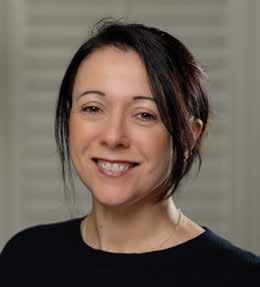



“COMING HOME”
For a successful Aliyah it is imperative to choose a community that will suit you and your family’s needs. We feel that in terms of those making Aliyah the community is the emphasis and the main priority. We are more than just Real Estate agents.
We call ourselves property and community matchmakers.
We feel that a house is just a house, but community is what turns it into home.
When one is making Aliyah you want to make sure it will really feel like home.
The community you choose will be your support system, having family and friends in Israel will be an advantage and living
next to them will be a game changer.
In bigger cities, neighborhoods can vary greatly from street to street. One should make sure he is doing correct homework to ensure this is the community one would want to identify as and be a part of.

If making Aliyah with children it may be worth finding a community that offers a wide range of schools, for different ages with a large anglo population.
In larger cities getting around Israel is very different, public transportation is very popular. You would want to research what kind of public transportation is within walking distance to your home.
Living in the center of the country will be more expensive than locations further north and south. Depending on your budget, it would be smart to consider what communities suit your family financially.
Our YouTube channel is a great platform to discover communities in Israel. You can join our Facebook page, WhatsApp group, or follow us on Instagram and Linkedin
where we constantly update with new listings! We’re always up for a chat, so feel free to reach out for a free phone consultation. At Kim Bash Real Estate We work with an ideology, an ideology that every Jew should own a home in Israel.
Come join us here in the Holy Land.
Let your journey home begin with us.
Kim Bash
Contact Kim:
https://wa.me/972544415704
kim@kimbashrealestate.com +972-54-441-5704
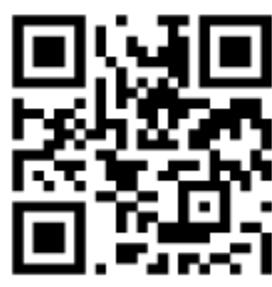
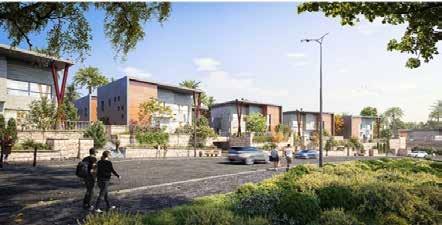






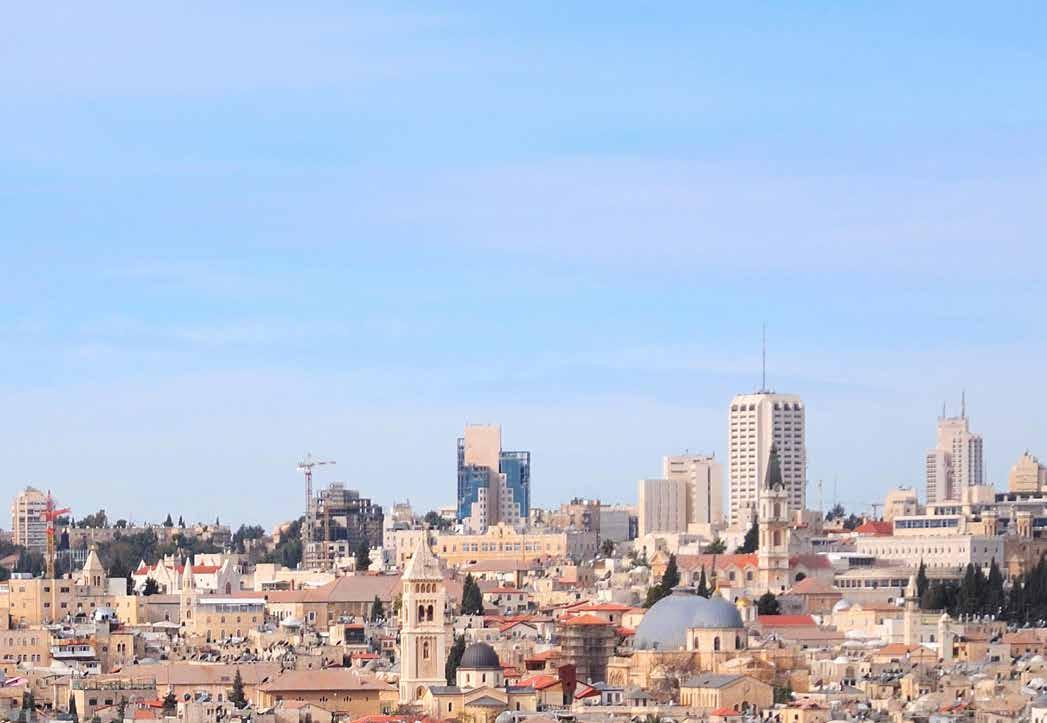


BY DOV NEWMARK
As we approach Pesach, the story of Yetziat Mitzrayim (the Exodus from Egypt) takes on deeper meaning, especially for those considering Aliyah. Just as Bnei Yisrael left behind the familiar for a new destiny in Eretz Yisrael, today’s Olim from the UK embark on their own transformative journey, filled with challenges but also immense opportunities.
Leaving the Familiar Behind
The decision to make Aliyah is never taken lightly. Recent times have brought increased uncertainty, whether due to rising antisemitism, economic instability, or simply the deepening desire to raise a family in a thriving Jewish environment. Much like our ancestors in Mitzrayim, many are feeling the call to move forward, despite the unknowns ahead. Pesach reminds us that redemption often comes through difficulty, but also
that Hashem guides us through the journey. Bnei Yisrael left Egypt with faith, and while their path included obstacles, they had divine assistance at every stage. Today’s Olim, too, may worry about finances, employment, education, bureaucracy, and integration into Israeli society. Yet, with the right guidance and support, these challenges can be overcome.
A Helping Hand on Your Journey

This is where I come in. As an Independent Aliyah Consultant, having spent years leading the UK department at Nefesh B’Nefesh, I now dedicate my time to assisting families and individuals considering Aliyah. My service is completely free, and my goal is simple: to make the transition as smooth and informed as possible.
I work exclusively with English-speaking
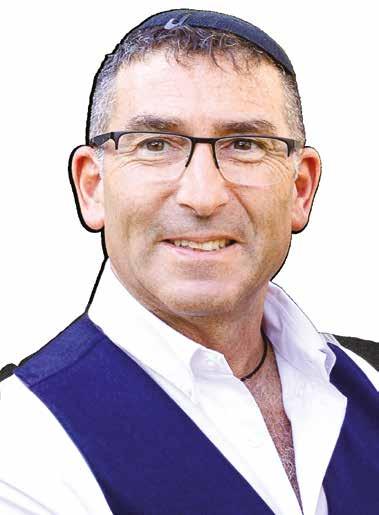

service providers, ensuring that you have access to reliable, trustworthy professionals who understand the unique needs of British Olim. From choosing a community and navigating bureaucratic processes to securing employment and schooling, I offer hands-on guidance every step of the way.
Taking the First Step
When Bnei Yisrael stood at the Yam Suf, it took one individual—Nachshon ben Aminadav—to step into the water before the sea split. Aliyah often feels the same; taking that first step requires courage. But just like at the Red Sea, once you begin the journey, the path forward becomes clearer.
If you are thinking about Aliyah, whether in the near future or further down the line, let’s start the conversation. I am here to provide clarity, support, and practical solutions to help turn your dream into reality.
This Pesach, as we recount the story of our ancestors’ journey to freedom, consider your own personal Geulah—the opportunity to build a new life in Eretz Yisrael. Reach out, and let’s take this journey together.
Wishing you all a Chag Sameach
dov@makealiyaheasy.com
020-8150-2245
+972-54-6785914
www.makealiyaheasy.com

Your next home in Jerusalem?

Arnona 7,800,000 NIS
Garden apt, 175 sqm,
garden 190 sqm
Namhum 050-7225694
Herzog Street 2,650,000NIS
4R, 65 sqm, 1st floor small yard, fully accessible
Orit 050-3362306
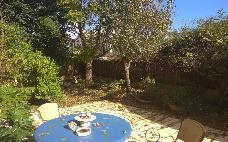
Rasco 4,200,000 NIS
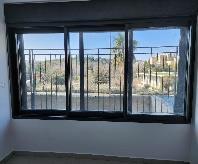
Arnona 3,99 0,000 NIS
Garden apt, 75 sqm, garden 95 sqm
Nahum 050-7225694
5R , 110 sqm, view, Sukka balcony, elevator
Rachela 052 -6503348
gilinski@017.net.il

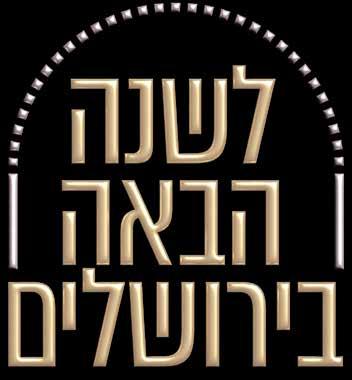

This may look like a dream — but owning a home in Israel can be your reality. Start your search on Buyitinisrael! Wishing you and your family a Chag Kasher V’Sameach.
BY DEBBIE TOLEDANO-GOLDFISCHER
Ma nishtana halaila hazeh? Why is this night different from all other nights? On Seder night, we gather around the table and ask four ancient questions — not because we don’t know the answers, but because asking deepens our understanding, connects us to our past, and guides us toward our future. And in that spirit, this Pesach, as millions of Jews around the world consider their connection to Israel — emotionally, spiritually, and practically — we pose four contemporary questions. Not about matzah and maror, but about something else entirely: buying a home in Israel.
1. Will prices in Israel ever come down? Ah, the eternal question. The truth is — no one knows for sure. But history offers clues. Over the last few decades, despite global recessions, wars, and political instability, housing prices in Israel have continued to rise. Why? A powerful combination of fundamentals: a chronic shortage of land, rapid population growth, consistent immigration (Aliyah), growing demand for earthquake-resistant and protected homes, and — since October 7 — significant construction delays. All of these forces have pushed prices upward. The result? A long-term upward curve that rarely dips. But it’s not all one-directional. Today, there’s some uncertainty in the market. Prices are high. Interest rates remain elevated. Construction costs are climbing, largely due to labour shortages. The war has slowed decision-making, while recent regulations from the Bank of Israel have limited developers’ ability to offer financial incentives—leading to an anticipated reduction in demand in some sectors.
At the same time, we’re seeing a growing supply of new housing units, and in some areas, a concern about potential oversupply. All of this could put downward pressure on prices, especially in peripheral or oversaturated areas.
That said, in high-demand neighborhoods — the Jerusalems, the Tel Avivs, the Modi’ins — significant drops remain unlikely. Real estate in Israel is hyper-local. It’s not a national market; it’s lots of micro-markets. So the better question might be: where might prices soften, and how can I take advantage of that?
2. Where is the best place to buy?
Another classic — and just like with the Four Sons, there’s no one-size-fits-all answer. The “best” place depends entirely on who’s asking, and why. Are you looking for a vacation home? Planning to make Aliyah in a few years? Buying for your kids or grandchildren? Investing for long-term growth?
For many English-speaking buyers, the perennial favorites remain strong:
• Jerusalem — rich with history and holiness, neighborhoods like Baka, the German Colony, and increasingly Arnona are in high demand.
• Netanya — a coastal gem with a strong Anglo community and more competitive prices.
• Modi’in — modern, green, and family-friendly, with great schools and outstanding accessibility to both Tel Aviv and Jerusalem.
• Tel Aviv — for those who want beachside city life, vibrant culture, and walkability.
• Beit Shemesh — especially attractive for religious families seeking a strong community feel.
• Carmei Gat and Ashkelon — rising stars, offering great value and growing populations.
But there’s a quiet revolution happening: Israel’s public transportation infrastructure is undergoing massive expansion. New train lines, light rail systems, and improved highways are making previously “far” places feel much closer. Peripheral towns are becoming viable options for families, retirees, and investors alike. And with more space, better prices, and less congestion, these areas offer something that central Israel often can’t: breathing room.
So, the best place to buy? It’s not just about geography — it’s about lifestyle, values, timing, and vision.
3. Should I buy new or pre-owned?
This question gets to the heart of the home-buying experience. Both options offer distinct advantages — and different kinds of risk.
Buying pre-owend means buying what you can see. The property exists. You can walk through it. You know who your neighbors are. You get the keys (relatively) quickly. The location is established, and you’re (usually) not living on a construction site.
But new construction offers its own appeal. You get a brand-new, modern, well-planned home — often with better layouts, higher construction standards, a warranty, and earthquake resistance. You usually pay in stages, allowing for more flexible cash flow. In many cases, the price per square meter is lower than that of secondhand in the same area.
Of course, you’ll have to wait — sometimes years. You’ll need to trust the developer and stay on top of every stage. And while many new areas become thriving neighborhoods, others take time to come alive.
Your decision will come down to your timeline, budget, tolerance for uncertainty, and the kind of life you imagine in Israel. Neither is inherently better. Both can be wonderful — with the right guidance.
4. Why should I buy now?
Let’s be honest — the world is uncertain. Interest rates are high. The news is unsettling. You might be thinking: maybe I should wait until things calm down. But here’s why now might be exactly the right time.
First, Israel needs your support. The real estate sector fuels the economy. Buying a home here is not just a personal investment — it’s an act of solidarity. It’s a declaration of commitment.
Second, in times of uncertainty, people seek anchors. A home in Israel is more than a financial asset — it’s an
emotional, spiritual, and national one. It gives your family a foothold, a future, a place to land. A home is not just a property — it’s a promise.
Third, for those buying with foreign currency, the current weakness of the shekel makes this a particularly strategic moment. Whether you’re holding dollars, pounds, or euros, your money now goes further — making Israeli real estate more accessible than it’s been in years. That currency advantage won’t last forever.
Fourth, while timing the market is nearly impossible, time in the market is what creates long-term value. Many of those who bought ten or twenty years ago — despite worries and doubts — now look back with gratitude that they didn’t wait.
And finally, because Israel will always be your home. Through every challenge, every war, every wave of uncertainty, one truth remains steady: this land is yours. Whether you plan to live here full time or part time or just want a piece of your heritage, making that connection real through a home can be one of the most meaningful steps you can take.
It reminds me of a story I once heard, one that stayed with me and feels especially relevant this time of year. A Holocaust survivor, who had rebuilt his life in Brooklyn, once gathered his family around the Seder table. In the middle of the meal, he quietly reached into his pocket, pulled out a key, and placed it on the table.
“When I was a child,” he said, “we had nowhere to go. Now, that will never happen again to our family. This is the key to the apartment I bought in Jerusalem.”
That apartment became more than a
piece of property — it became a home base. Over the years, his grandchildren who made Aliyah lived there while serving in the army or getting settled. Eventually, his children made Aliyah, and the apartment became their home. It would have been much harder — maybe even impossible — for them to make the move without that foundation. That key represented safety, belonging, and a promise fulfilled.
This Pesach, ask the questions. And remember, like the answers at the Seder, these aren’t just practical — they’re personal. Buying a home in Israel isn’t only about square meters and shekels. It’s about identity, continuity, and a future you believe in.
Chag Kasher v’Sameach. May this year bring us all a little closer… to each other, and to home…
Debbie Goldfischer is the founder and CEO of Buyitinisrael and host of the Israel Real Estate Podcast: On The House. A prominent figure in Israeli real estate since 2004, Debbie has spent the past two decades helping foreign buyers successfully navigate the property market in Israel. In 2020, recognizing the lack of reliable English-language resources, she launched Buyitinisrael.com, which has quickly become the leading platform for English speakers looking to buy property in Israel. In addition to leading the platform, Debbie personally assists buyers in finding the right property—whether new or resale—anywhere in Israel.
To get in touch, email debbie@buyitinisrael.com.


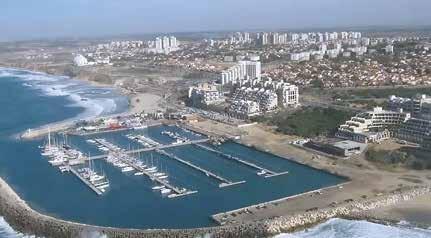

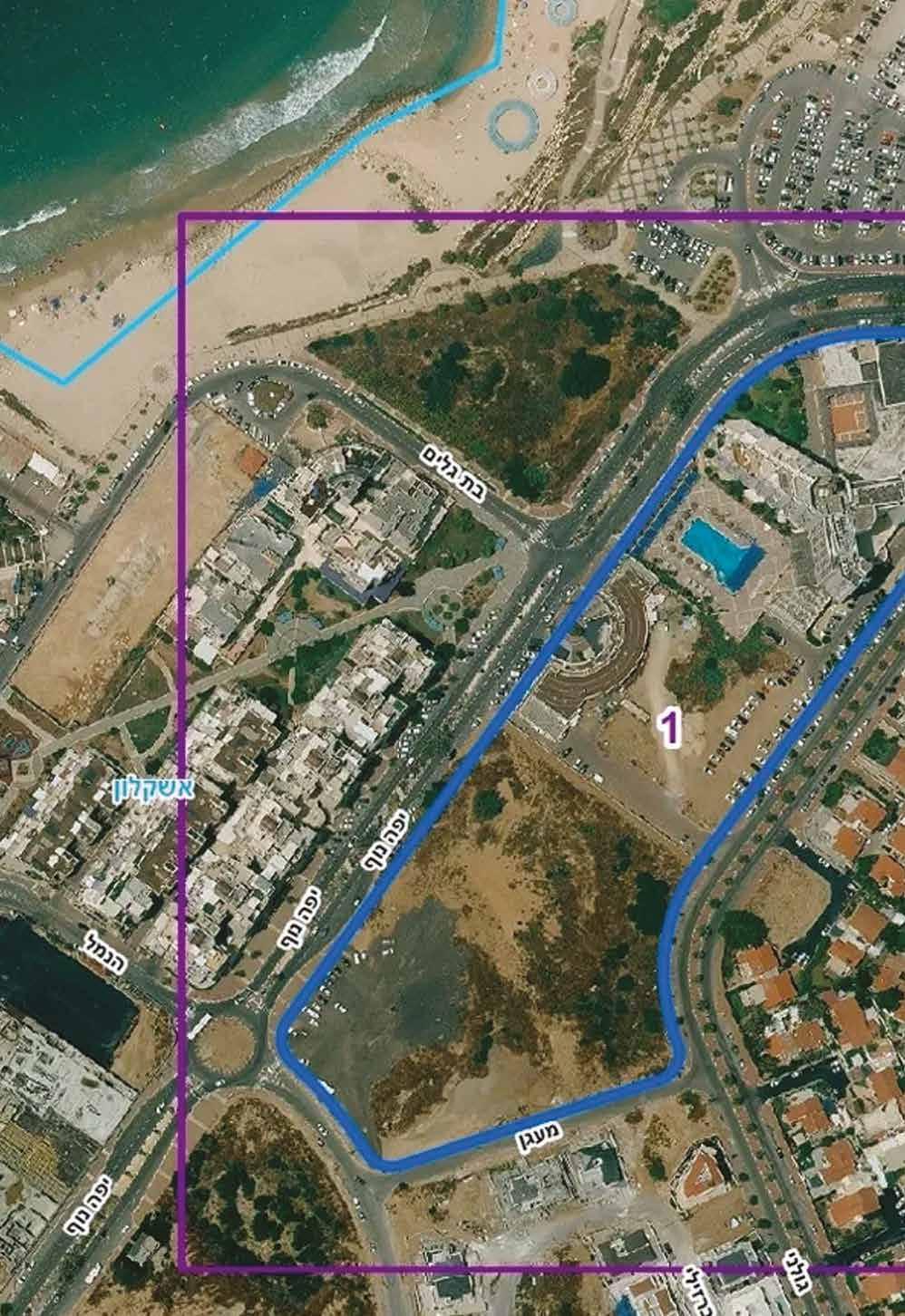


BY RABBI AVROHOM ZEIDMAN
Self-improvement is a booming
industry. From 75 Hard to extreme fitness regimens and personal development courses, people everywhere are looking for ways to push themselves. But most of these challenges focus on self—becoming stronger, more resilient, more disciplined for your own sake
What if there was a challenge that wasn’t just about you—rather about making you into a person who lifts up others?
For thousands of years, Judaism has had such a system: a 49-day structured challenge designed for deep character refinement. It’s called Sefirat HaOmer the Counting of the Omer—and it’s not just about personal growth. It’s about becoming the kind of person who can give, who can lead, who can build a better world—49 Days. 7 Core Traits. A Complete Personal Overhaul.
This isn’t just another self-help programme. It’s an ancient Kabbalistic roadmap for inner transformation—tried and tested for over 3,000 years.
The 7 Core Traits of the Challenge
Each of the seven weeks of the Omer is dedicated to a core trait, with each day refining a deeper aspect of it. Since each trait contains elements of the others, we work on them in a 7×7 structure—49 unique combinations. This means we don’t just develop Chesed (kindness), but also Chesed within Gevurah (kindness with discipline), Chesed within Tiferet (balanced kindness) and so on. Each day becomes a step in a structured journey toward becoming a more refined and giving person.
Chesed – Kindness & Giving Chesed is about expanding
beyondourselves, recognising that giving to others is at the core of what it means to be human. It’s not just kindness— it’s boundless kindness, a generosity that overflows and uplifts. This week challenges us to see where we can give more, love more and break out of selfcentredness.
Gevurah teaches us that real strength isn’t just about force—it’s about control. It’s the ability to set boundaries, to say no when necessary and to hold ourselves accountable. Without Gevurah, kindness can become indulgent and directionless.This week focuses on developing discipline, structure and a strong moral compass.
Tiferet is the perfect balance between Chesed and Gevurah. Too much Chesed leads to uncontrolled giving, while too much Gevurah leads to rigidity and withholding. Tiferet ensures that kindness is not reckless and that discipline is not harsh. But this balance isn’t just about moderation—it’s about truth. Tiferet is the ability to see things as they really are and to respond in a way that is fair, just and aligned with reality.
Netzach is about the imposing of will onto another—not in arrogance, but with purpose. It is about influencing, pushing and driving others toward what is right, even when they resist. This is the force of a parent guiding a child, a teacher disciplining a student or a leader inspiring action. Netzach doesn’t accept passivity. It fights for what matters and is relentless in ensuring the right outcome.
Hod is the opposite of Netzach. Where Netzach drives forward, Hod steps back. It is about restraint in relationships—about not imposing, but listening to others and respecting their needs. Hod is the ability to submit to others’ needs—not out of weakness, but out of deep emotional wisdom.
Week 6Yesod – Real Connection
Yesod is the ability to create meaningful relationships, to build trust and to connect on a deep level. It is the foundation upon which all healthy relationships stand. This week challenges us to reflect on our connections—are they genuine? Are they built on integrity? Are we people others can rely on?
Week 7
Malchut has no energy of its own. It is the ultimate receptacle, receiving everything that came before it. It is the ability to empty oneself of ego completely, to take in, absorb and internalise. But Malchut is not passive—true receiving is preparation for future giving. It is about developing the humility to accept, so that when the time comes, we can pass it forward and uplift others.
Unlike most self-improvement challenges, the 49 Tough Challenge isn’t about proving how great you can be. It’s about becoming the kind of person who can give more, lead more and make an impact.
This is a journey of self-mastery— not for self-glorification, but for self-transformation.
if there was a challenge that wasn’t just about you—rather about making you into a person who lifts up others?

The Jewish Volunteering Network (JVN) is announcing changes to our leadership team, recognising the outstanding service of our trustees and ushering in a new chapter for the organisation.
Daniel Levy, who has served as Chair of JVN since April 2021 and has been a JVN trustee for 10 years, will be stepping into the role of President. Daniel took on the role as Chair following the untimely
passing of David Lazarus z”l at the start of the pandemic and has led the charity with vision, compassion, and dedication during a time of rapid changes, challenge and rising demand for volunteering.
JVN’s current President, Ros Preston OBE, will become Life President, in recognition of her exceptional leadership and long-standing support for the organisation and the volunteering community.
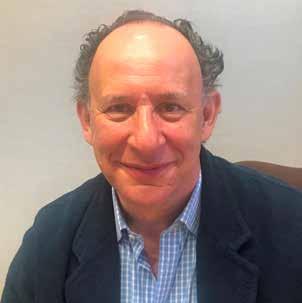
Clive Nathan, currently serving as a trustee since July 2023, will take on the role of Chair. Clive brings significant leadership experience from both the corporate and voluntary sectors and has a deep personal commitment to the power of volunteering.
Ros Preston said:
“I am sure the purpose and objectives of JVN will be further developed and strengthened under the newly appointed Chair Clive Nathan, who follows the outstanding and dedicated commitment in time and vital resources of the outgoing Chair, Daniel Levy.
My thanks and appreciation of these two exemplary VOLUNTEERS!!!”
Daniel Levy said:
‘You change the world not by looking at it, but by the way you look at it. Not by what you see, but by what you do.’

“It has been a privilege to serve as Chair of JVN and to help grow a movement rooted in giving, community and purpose. As Rabbi Lord Sacks z”l taught,
That spirit has guided everything we’ve done — and I’m delighted to continue supporting JVN in my new role as President.”
Clive Nathan commented:
“It is an honour to continue the fantastic work that Daniel has done over the last 5 years. We have an excellent group of trustees and a wonderful executive team. Our aims and strategy will not change and that includes our commitment to engaging with community partners who truly value the benefits of volunteering. I know from personal experience the huge boost it can give to everyone involved. It can be a real game changer in developing a team.”
JVN Chief Executive Nicky Goldman added:
“As we mark 18 years of inspiring and enabling volunteering, we are deeply grateful to Ros, Daniel and Clive for their leadership and vision. These transitions ensure continuity at the heart of JVN and reflect the strength of our trustee board and the values that drive our work every day.”




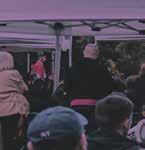
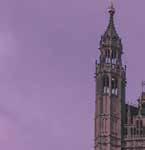
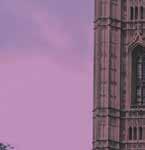
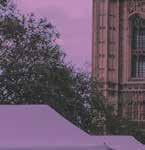


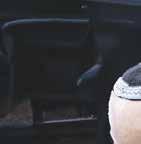


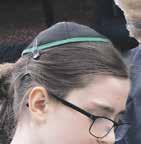
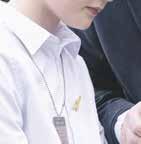
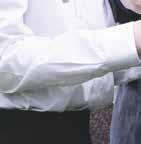
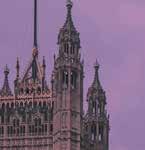
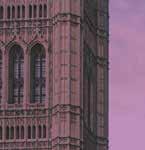
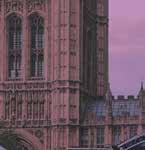
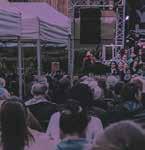


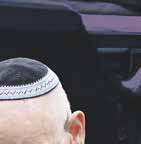


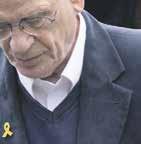
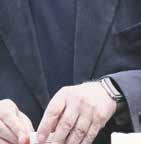



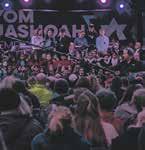


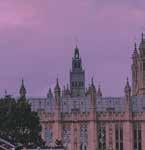
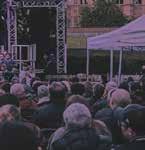



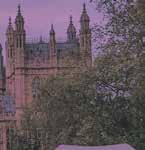
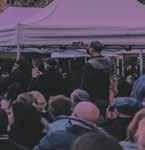


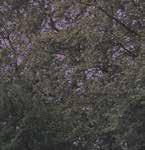
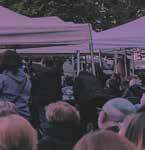
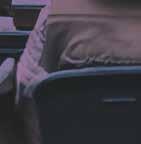



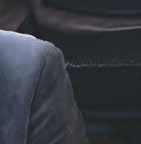
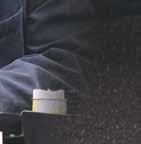
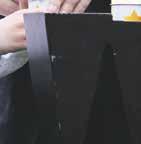








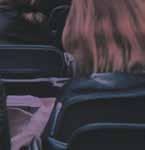





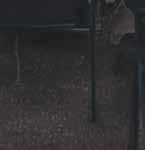
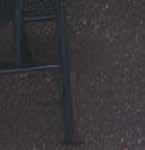
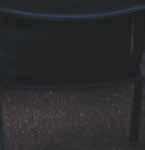
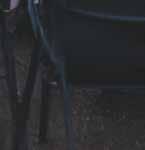







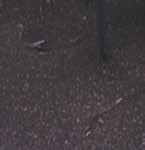


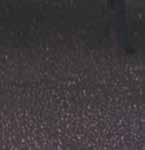

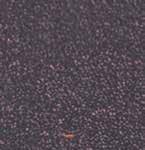
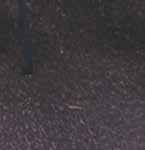


Looking for answers? Send your question to
Dear Rabbi
A close member of our family recently went through a violent experience that shook us all. While he is showing remarkable strength and has begun returning to a sense of normalcy, the rest of us are still emotionally unsettled. Our reactions range from numbness to anger, and at times we feel lost. We are practicing Jews and keep wondering why such pain entered our lives - what does it mean, and how are we meant to process it?
We have begun therapy, which has brought some comfort, but we know this will be a long journey. The attacker has been apprehended, and we are preparing ourselves emotionally for the trial ahead. If you could offer us any spiritual guidance, perspective, or wisdom to help us hold steady and support each other, we would be deeply grateful.
Elchanan
Dear Elchanan
First, let me extend my heartfelt compassion to you and your family. What you’ve experienced is profoundly painful, and it’s entirely natural that your emotions are fluctuating. Trauma affects not only the individual who endured it directly, but also the circle of loved ones who bear witness to their suffering. The counselling you’ve undertaken is an important and necessary step. Healing takes time. You may find some days easier than others, and others unexpectedly difficult. This is all part of the process. Healing is rarely linear, but rather a winding road that often requires revisiting pain with the guidance of professionals, and with compassion toward yourselves.
From a Jewish perspective, it’s important to approach this painful chapter not with blame. In times of crisis, the soul often cries out, “Why did this happen to us?” It’s an ancient question, one even Moshe asked when he cried, “Lamah harei’ota — Why have You done evil to this people?” in the Exodus story. And yet, Hashem’s response was not an answer of logic, but of presence. G-d does not always provide explanations, but we are assured of accompaniment. “I am with you in distress” (Psalms 91:15).
Judaism teaches us that we live in a world of hester panim — a reality where G-d’s presence is often hidden. We cannot always discern purpose in pain, nor should we rush to assign moral meaning to suffering. It is not your fault. Judaism does not teach that every trauma is a punishment or reflection of personal failing. Rather, we are taught that even in the darkest concealments, the soul can grow, and that acts of compassion, unity, and kindness bring light into the world.
Kabbalah speak of shevirat hakeilimthe breaking of vessels - moments when the world seems to shatter, yet in that breaking lies the potential for deeper repair and transformation. You are walking
through such a moment now. It is heartbreaking, but it is not hopeless. In times like these, lean into community, family, and faith. Continue to gather as a family - not only to process pain, but also to create moments of connection and quiet joy. Light Shabbat candles with intention; let that small flame remind you that darkness is never absolute. Say extra Tehillim, whether together or separately - and let your tears and prayers mingle. Above all, be gentle with yourselves. Healing is holy work. Every moment is part of the journey back toward wholeness.
The matzah we eat on the first night of Pesach is referred to as “the bread of faith.” On the second night it is referred to as, “the bread of healing.” May you experience both, a full healing of body, mind, and spirit and may you know, even through the clouds of sorrow, that you are not alone - not in this world, and not before G-d.
Dear Rabbi
Israel’s recent decision to ban and deport two British Members of Parliament is yet another blatant demonstration of its moral decay and authoritarianism. What kind of democracy fears elected officials so much that it blocks their entry? Is Israel so terrified of criticism that it silences even foreign lawmakers? These are not security measures -they’re the tactics of a regime with something to hide. And don’t even try to accuse me of being an antisemite – I am as Jewish as you are!
Stephanie
Dear Stephanie
Your Jewish identity doesn’t shield you from criticism - it makes your betrayal sting even more. There’s something especially perverse about Jews who go out of their way to amplify lies, embolden our enemies, and undermine the world’s only Jewish state, all while pretending it’s some kind of moral crusade. That’s not bravery. That’s cowardice dressed in self-righteousness.
Let’s not mince words. Israel owes no one - not you, not the UK, not the global parade of armchair critics - an apology for defending itself. The two MPs who were turned away weren’t harmless diplomats - they’re propagandists for Israel’s enemies. They’ve echoed Hamas talking points, championed movements calling for Israel’s destruction, and pushed for international punishment of a state that has spent its entire existence under siege. If you align yourself with those who fund, defend, or excuse terrorism, you don’t get to stroll into Israel like it’s some open-air debating society. You get shown the door - and rightly so.
You call this authoritarianism? Then let’s talk about real authoritarianism. Try stepping into Gaza or Tehran and criticising the ruling regime. You’ll disappear. In
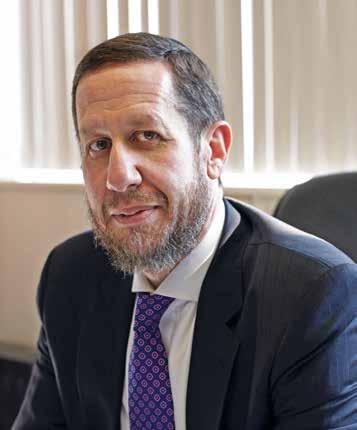
Israel, there are protests every week, newspapers that trash the Prime Minister daily, and courts that challenge government policy regularly. But when Israel enforces its right to protect itself from those who openly support its destruction, you scream tyranny? Your hypocrisy is grotesque. And how dare you accuse Israel of hiding. Hiding from what, exactly? From your double standards? From the “human rights” mob that suddenly loses its voice when Jews are butchered in their homes? Israel hides nothing. It fights every single day in the full glare of the world’s most hostile media, under more scrutiny than any other nation on Earth. It’s not hiding - it’s surviving. If only you applied your energy instead in calling for the release of the remaining hostages who are being held in barbaric conditions, while the world just sits idly by.
So, let’s drop the sanctimony. You’re not speaking truth to power. You’re parroting propaganda and calling it conscience. And if you think being Jewish gives you moral high ground while
helping tear down the Jewish homeland, think again. You’re not standing up for justice - you’re standing with those who would see Israel wiped off the map. And history will remember that.
May you see sense, may the hostages all be returned, may Israel know of peace and tranquillity with none to make them afraid. And may we indeed merit, as we say at the end of Seder night, “next year in Jerusalem!”

BY RABBI MOSHE TARAGIN
Pesach night is a radiant night of masorah, a night when we pass down our traditions and collective memories. Few nations not only remember but relive events from thousands of years ago. The Seder, with its enduring power and grandeur, has transcended time and space, surviving thousands of years of Jewish exile.
For the people of the book, the Haggadah remains our most published sefer, its voice echoing across generations. More versions of the Haggadah have been produced than any other “sefer”.
The entire Seder revolves around a conversation—questions and answers. The Seder is not merely a retelling of history but a re-experiencing of yetziat Mitzrayim, a journey best undertaken through active dialogue. This question-and-answer format, generally characteristic of Talmud Torah, unfolds not in a Beit Midrash but around the Seder table, woven into the fabric of family life. For thousands of years, across countless lands and cultures, we have transmitted our common story around the family seder table.
The very first Seder marked the emergence of our identity not just as a nation but as a family. On the night of yetziat Mitzrayim—we were commanded to offer the korban Pesach. The timeframe for eating this korban is the most limited of any korban; it had to be consumed by midnight. Additionally, the meat could not be removed beyond its original building. Hence the most natural and logical “arrangement” for korban Pesach was for each household to bring its own family korban offering thereby assuring that the meat would remain at home and that it would be finished on time. As the Torah writes: a lamb for each household, a lamb for each family. Korban Pesach was an intimate, family-centered experience. Centuries of slavery had threatened to eradicate Jewish family life. Slaves, crammed into squalid quarters, rarely sustain stable family structures. They have little control over their children, who can be sold or bartered like mere possessions. Worse Pharaoh, who could not bear the sight of a Jew, unleashed his fury upon our infants, decreeing that they be cast into the Nile. Tragically, history has repeated itself, and this gruesome crime continues to be inflicted upon our people.
That we still managed to preserve our families and gather for the Seder, even under the crushing weight of slavery, was a testament to our resilient spirit and unbreakable faith.
Additionally, that first Pesach night, we coalesced into one family by realizing that we shared a common Father. We are all familiar with Moshe’s famous demand
to Pharaoh: “Let My people go.” But this phrase, so often quoted, is not entirely accurate. The actual first message Hashem commanded Moshe to deliver was far more personal: “Let My firstborn child go, or I will take your firstborn.”
On the night of the first seder as we gathered around our family korban and heard makkat bechorot strike, we realized that Hashem was not only our Creator and Redeemer—He was our Father. If we all shared a common Father who defended His children, then we were not merely a people; we were a family.
Family identity as the backbone of Jewish identity did not begin on the night of yetziat Mitzrayim. The entire story of Bereishit is the story of a family—one that wrestled with the classic struggles of family life: tensions between spouses and siblings, disputes over inheritance and legacy, the challenge of preserving unity, and the responsibility to protect one another. Our national history, long before slavery and redemption in Egypt, began not with a kingdom or a formal structure, but with a family taking shape.
Every year, the Seder rebuilds our family identity. We gather with our families, ask our children questions, and pass down our story—reminding ourselves that the Jewish nation is, at its heart, a Jewish family.
We have always seen ourselves as a family—even when we lived far apart. Our family identity was at the heart of our survival. When we lost the outward signs of nationhood—sovereignty, land, an army, a flag— we held fast to a shared family identity that bridged the continents that divided us.
centuries, something about life in Israel makes us feel even more like a family— both for those Jews who live in Israel and for those who have yet to make it home. We hear it often: one of the joys of living in Israel is the sense of being part of a family and treating one another as such. We feel more willing to step out of our comfort zones for each other, whether it means offering help to “strangers”, opening our homes, or simply engaging in heartfelt conversations with people we hardly know but with whom we share so much.
It’s difficult to pinpoint exactly why living in Israel strengthens our family identity, but part of it may be that most Israelis are relatively recent immigrants. Very few can trace their presence in Israel beyond three or four generations. At some point, we all arrived here, often without our entire family; in place of the natural family history we left behind, we found ourselves forming a new, collective family identity in this land.
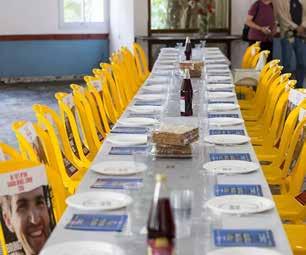
Jewish family identity didn’t just unite scattered Jews—it demanded that we treat each other as family rather than as mere members of a nation. Family members show greater care and concern for one another, and demonstrate deeper devotion and sacrifice. As the Rambam describes the value of tzedakah (Hilchot Matnat Ani’im 10;2): “All Jews, and those who join them, are like brothers, as it is said: ‘You are children of Hashem, your G-d.’ And if a brother does not have mercy on his brother, who will have mercy on him?”
Though we have lived as a family for
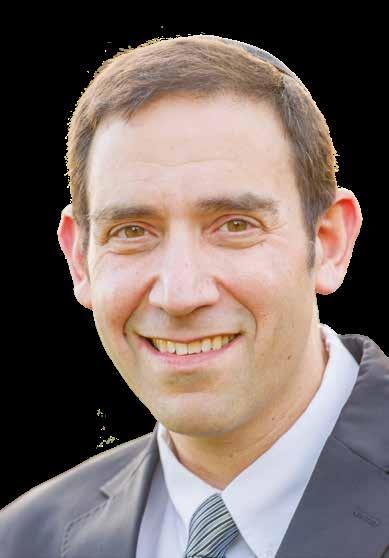
The war has intensified the already tangible sense of family in Israel, forcing us to live, grieve, and stand together as one extended household. We have operated beyond the usual boundaries of nationhood, helping one another and ensuring that families survive under the crushing strain of war.
Two years have passed since social strife tore our nation apart, and even after a war for survival, we still haven’t found the recipe for national unity. Much of the strife revolves around the question of how democracy should be wielded. Can a slim majority impose its will upon the rest of society? How do we navigate opposing policies without descending into toxic discourse and corrosive dialogue? Ironically, democracy is pulling us apart from within.
Perhaps the path to unity begins with redefining our terminology. Perhaps we shouldn’t define Israeli society as a democracy. Democracy is merely the political system through which we conduct government and decide common
policies. As the fairest form of governance, democracy should guide Israel, but our deeper identity must be that of a family, not merely a political system. Family members have greater tolerance for one another and do not focus solely on their own needs. They don’t impose solutions upon each other but instead seek to build consensus. Democracy is a contest; family is a compromise. The Pesach Seder should instill in us a more acute sense of family, guiding us toward a softer discourse and a more tolerant and understanding vision of what it means to be a family living jointly in Israel.
Finally, as you sit around the Seder table with your family, please keep in mind all the families in Israel whose Seder is incomplete because of loss. From the families of hostages to the bereaved families, from the families of injured soldiers to those who have borne the weight of hundreds of days of reserve duty. We have all felt the pain, struggle and loss that this war has imposed on our families. If we are a nation that sees itself as a family, let us remember those families who have carried such a heavy burden throughout this war.
The writer, a rabbi at the hesder Yeshivat Har Etzion/Gush, was ordained by YU and has an English literature MA from CUNY. His recent books including: “Reclaiming Redemption: Deciphering the Maze of Jewish History” (Mosaica Press) and “To be Holy but Human: Reflections upon my Rebbe, HaRav Yehuda Amital” (Kodesh) are available in bookstores and at www.mtaraginbooks.com.

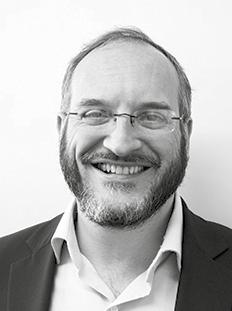
BY RABBI NAFTALI SCHIFF
We are, by nature, self-centered.
We’re born that way. Infants cry to have their needs met. Toddlers yell “mine!” with abandon. Even as adults, we often filter the world through the lens of - How does this affect me? It’s not necessarily selfish—it’s human. We are wired to feel our own pain before we notice someone else’s, to focus on our needs, our families, our ambitions.
Judaism doesn’t deny this. In fact, it starts right there—with the self.
The very first command to the very first Jew is Lech Lecha—“Go for yourself” (Bereishit 12:1). Find your path. Discover your identity. Develop your soul. Take yourself seriously. But don’t stop there. Build up your self in order to allow then step beyond yourself.
As the founder of GIFT, an educational charity dedicated to inspiring the next generation towards lives of giving, I have seen time and again how powerful it is when young people shift their focus from what they think they need to have for themselves to how they can give to others. It’s not about negating the self—it’s about harnessing and at times transcending it. Our mission at GIFT is to guide young people on that very journey: from “me” to “we”.
This Pesach, as we sit at our Seder tables—so often family-centric, intimate, and personal—we’re reminded that while Judaism begins with the individual and the home, it is ultimately about peoplehood, purpose, and responsibility beyond. The Exodus was not about private emancipation; it was about the forging a Nation, empowered and charged with changing the world!
Rabbi Chaim of Volozhin’s classic work Nefesh HaChaim opens with a foundational introduction written by his son Rav Yitzchak, in which he quotes two powerful yet seemingly contradictory teachings he relates were often repeated by his Father. The Talmud (Sanhedrin 37a) teaches: “
Bishvili nivra ha’olam”—“The world was created for me.” Each individual is infinitely valuable, a world unto themselves. We are also taught: “אלא
Lo nivra ha’adam ela leho’il la’acherim”—“A person was created . only to benefit others.”
It seems clear that Reb Chaim was continually driving home the principle that however great the individual, it is imperative to live with an understanding that we are here to serve and to help others. These aren’t contradictions—they’re two parts of a single truth. We matter enormously specifically because we are capable of lifting others. We have weight and worth especially because of our potential to shape the world for the better.
Judaism demands we know ourselves and develop ourselves—but never with self as the end goal.
Seder Night is indeed family centric, however it is not only about family. Seder night encapsulates the journey from self to collective.
It begins, fittingly, in the home. We are told: “אוהה םויב ךנבל תדגהו”: “You shall tell your child on that day” (Shemot 13:8). The focus is personal, intimate, intergenerational. We engage our children. We use symbols and rituals to stimulate questions and curiosity. We share our family traditions and tell stories of our ancestors. But if we leave it at that, if we reduce Pesach to a sweet family night in, we’ve missed the point.
The Haggadah begins with Avadim Hayinu ונייה םידבע“We were slaves” and ends with L’shana Haba’ah B’Yerushalayim םילשוריב האבה הנשל - Next year in Jerusalem.” That’s not just a hope for personal peace or family wellbeing. It’s a national dream, a collective destiny. The Pesach story isn’t about how I became free. It’s about how we, the Jewish People were forged into a Nation to carry forward a mission.
As the Torah repeats again and again, “I took you out of Egypt to be your G-d” (Shemot 6:7). Redemption, the הלואג from slavery in Egypt was not an end in itself, it was a beginning.
Miriam and their families from Egypt.” It says: “Vayehi b’etzem hayom hazeh, yatzu kol tzeivot Hashem mei’eretz Mitzrayim” “On that very day, all the legions of G-d went out from Egypt” (Shemot 12:51). Moshe insists ךלנ ונינקזבו ונירענב! We shall all go out- young and old.
We are a People. We are indeed made up of individuals and families; of Moshes and Miriams, parents and children, tribes and elders. But together we became something more; something entirely different in essence. Redemption came not to individuals, but to Am Yisrael—a Nation charged with purpose.
Rav Soloveitchik, in his famous treatise Kol Dodi Dofek, קפוד ידוד לוק explains that the covenant at Sinai was not a private moment of faith. It was akin to a collective marriage between G-d and an entire People. The strength of Jewish life lies not in isolation, but in community, in Klal Yisrael. This qualitatively unique entity- the People of Israel came into being the day we triumphantly left Egypt. On Seder Night we journey through self via Family to Peoplehood charged with the magnificent responsibility of bringing G-dliness into the world.
Chassidic thought speaks of an unblemished soul called “Yisrael.”

This journey from “I” to “we” is embedded in our daily language of all our tefillah. Psalm 69 says, “Va’ani tefilati lecha Hashem” ׳ה ךל יתליפת ינאו “But I—my prayer is to You.” We begin with the individual, raw and real. But our formal prayers quickly shift to the plural: Selach lanu, Refa’einu, Barech aleinu—“Forgive us,” “Heal us,” “Bless us.” ,וניאפר,ונל חלס לכ
םיש ,ונילע
The culmination of every Jewish prayer service is which Aleinu ונילע. It culminates with a vision for universal redemption: “yakir’u veyedu kol yoshvei tevel” לבת
….“May all the inhabitants of the earth recognise and know You.”
This movement, starting with the self and ending with the all is not accidental. It’s foundational and fully intentional. We begin with personal needs, but we lift our eyes to see both the suffering and potential of others, of our people, of all humanity.
This is reflected in the very telling of the Exodus. The Torah doesn’t say, “And Hashem took out Moshe and Aharon and
of the Mishima “if not now, when?” is a permanent call to action of self growth combined simultaneously with communal service.
The self matters. The family matters. But if that’s where it ends, we have failed to fulfill our purpose as Jews.
The Jewish journey is clear: Self → Family → Community → Nation → Mankind.
That is the arc of Jewish purpose. It’s not about being a private success story. It’s about building a People who will bring light to the world who through their worthy actions shall be viewed as an Or lagoyim, םיוגל רוא as the prophet Yeshayahu puts it.
This is why Moshe Rabbeinu, the greatest of Prophets, is remembered not only for personal piety or mystical experiences, but for standing with and for his people. “Erase me from Your book,” he says to G-d, “if You will not forgive them” (Shemot 32:32). He identifies entirely with his People—even in their lowest moment. And the greatest Jewish leaders throughout our history have followed in his footsteps. They did not rise above the People, they rose together with them.
This Pesach, as we gather in the warmth of our homes, we are called to lift our eyes and expand our hearts.
The Noam Elimelech writes that each Jew is a spark of this greater spiritual entity. Our real spiritual vitality comes when we are connected to the Klal, the totality of the Jewish people.
When we separate ourselves—physically, emotionally, spiritually—from the People, we weaken not just our connection to others but to our very identity as Jews.
The Zohar and the Talmud both teach that the Shechinah, the Divine Presence, does not rest on individuals in isolation but on communities: *“U’cheshem sh’hashchinah shora al Yisrael, kein eina shora ela b’tzibbur”—*the Shechinah rests upon a community of Jews, not merely individuals.
There is an almost universal epitaph: “He loved his family.” And that’s beautiful. It’s noble. But for the Jew I would humbly suggest, it’s just not enough.
We are not meant only to build isolated islands of piety, kindness and closeness. Our homes are meant to be embassies of Jewish purpose, lighthouses of compassion, connection and community. They are the starting point—not the destination.
As Hillel says in Pirkei Avot: “If I am not for myself, who will be for me? But if I am only for myself, what am I?” The third part
Let us cherish our families, but not stop there.
Let us tell Our Story, but understand and live with its purpose.
Let us taste freedom, but commit to responsibility.
From Egypt, we marched not to private farms and gated villas—but toward a national destiny, a covenant, a mission. We stood together at Sinai. We aspire together for Yerushalayim!
Let’s teach our children that their greatness lies not just in personal achievement but in public responsibility. That their stories matter most when they become part of the greater Jewish story. That our identity as individuals and families gains its full meaning only when connected to community, peoplehood, and greater purpose.
Because in the end, the story of Pesach is not about “me.”
It’s about “we.”
And that is where true freedom, and true fulfillment, begins.
Shabbat shalom! Chag Sameach!

///What3Words is a geocoding system that divides the world into 57 trillion 3x3 squares, each identified by a unique three-word address. Rabbi Naftali Schiff reflects on three words each week, relating to core issues of the day.
Feedback welcome! NSchiff@JFutures. org Rabbi Naftali Schiff is the Founder and Chief Executive of Jewish Futures
The ultimate Passover shopping experience is here! Explore the largest selection of Kosher for Pesach products, delivered straight to your door across the UK. Orde r now and pick your preferred delivery slot for a hassle-free holiday!
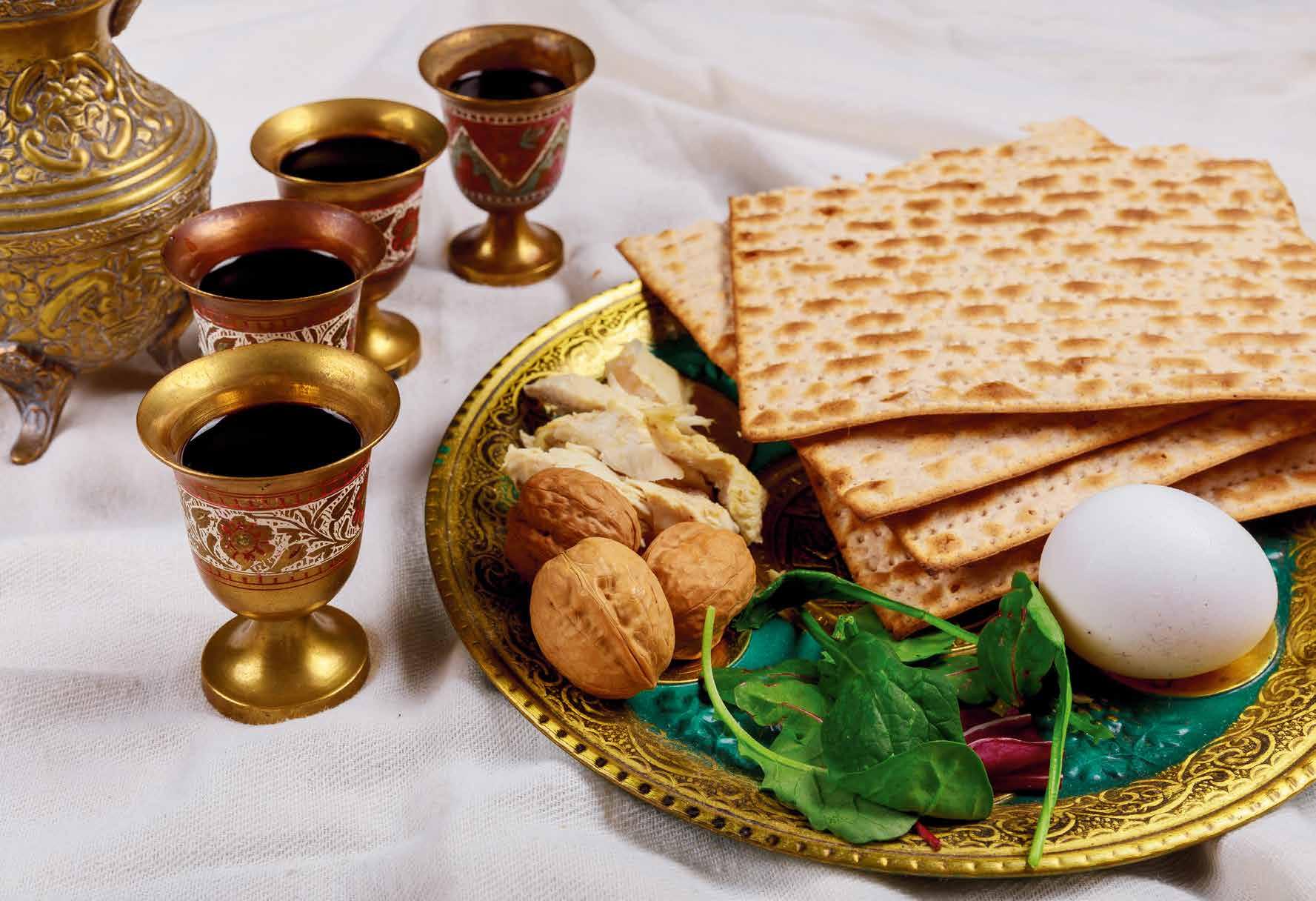
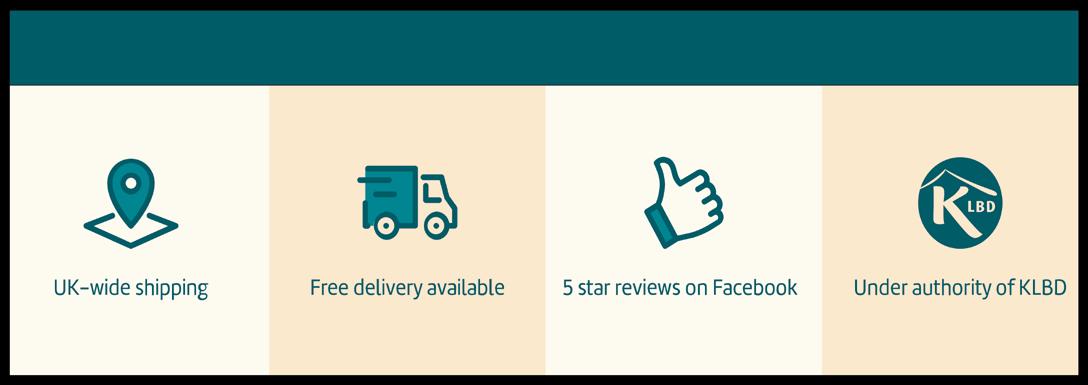




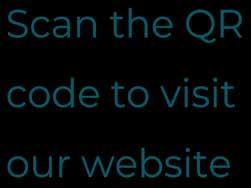
BY RABBI SHAUL YONATAN TAWIL
It was a momentous occasion; Simon was finally under the Chupa with his dear bride Sarah. Hundreds of people eagerly looked on as the final smash of the glass occurred accompanied by music and large chants of Mazal Tov!
The Rabbi stood there and said “I pronounce you man and wife”. Both Simon and Sarah raced their hands to their pockets.
As they took out their phones, the Rabbi continued –“you can now update your Facebook status!”
This is the year 2016!
In October 2014 research was carried out showing that there were more mobile devices in the world than people, and that they were multiplying five times faster than us! No other technology has impacted us like the mobile phone. It’s the fastest growing manmade phenomenon ever -- from zero to 6.5 billion in three decades.
Out of the world’s estimated 7.2 billion people, 6.5billion have access to mobile phones. Far fewer — only 4.5 billion people — have access to working toilets.
In a blessed generation of technological advance the question has to be asked, how do we feel? I am sure you feel blessed with the affluence of this generation, but living in this generation comes with its baggage, are we really free, or are we subservient to our surroundings and the ever increasing techno advance?
It was the custom of ancient Royalty to recline on their left (since one holds food with their right hand, or alternatively to prevent the epiglottis from covering the trachea) when indulging in delicacies.
On Pesach we consider ourselves as not only a free nation, but a nation of Royalty. Thus our Sages enacted that on Pesach when participating in the Mitsvot of the night one should lean like Royalty.
Rabbi David Yosef Shlita (son of Rabbi Ovadia Z’l) told me of a case where a person had been a prisoner for many years. He was still in prison and asked the Rabbi whether he should also lean on Pesach. On the one hand Pesach and particularly the leaning is a celebration of freedom, yet in reality he was not free. Was it really necessary for him to lean?
Rabbi David Yosef answered that he was still obligated to lean. Although he was physically in prison, that did not impede on his mental freedom and celebration of Pesach.
Freedom is a choice of mind. If you are in control of your mind, you have the ability to be free even in the most daunting of places.
However, ‘Freedom’ itself has different dimensions, a point reflected in the two Hebrew words used to describe it - Chofesh and Cherut. Chofesh is ‘freedom from’ and Cherut is ‘freedom to’.
Chofesh is what a slave acquires when released from slavery. He or she is free from being subject to someone else’s will. But this kind of liberty is not enough to create a free society. A world in which everyone is free to do what they like begins in anarchy and ends in tyranny. That is why Chofesh is only the beginning of freedom, not its ultimate destination. One only needs look around at the world and in particular the Middle East to understand that ‘freedom from’ is not the end game.
Conversely, Cherut is collective freedom, a society in which my freedom respects yours. A free society is always a moral achievement. It rests on self-restraint and regard for others. The ultimate aim of Torah is to fashion a society on the foundations of justice and compassion, both of which depend on recognising the sovereignty of G-d and the integrity of creation. It is for this reason that we say, ‘Next year may we all be Bnei Chorin, rather than Bnei Chofshim. We are stating, ‘May we be free in a way that honours the freedom of all’.
In January 1945, fearing the Russian advance, all prisoners of Auschwitz who could walk were taken on the brutal ‘death marches’. The only people left in the camps were those who were too ill to move. Those remaining were liberated on January 27 1945, a day now commemorated as International Holocaust Remembrance Day. Primo Levi was a survivor of Auschwitz. In his book ‘If This is a Man’, he describes how the worst time of all was the last ten days that they were left alone with only scraps of food and fuel. One day he managed to light a fire and bring some warmth to his fellow prisoners, many of them slowly dying. He writes, “When the broken window was repaired and the stove began to spread its heat, something seemed to relax everyone and at that moment Towarowski (a Franco-Pole of twenty-three) proposed to the others that each of them offer a slice of bread to the three of us who had been working. And so it was agreed. Only a day before, a similar event would have been inconceivable. The law of the Lager said, ‘eat your own bread and if you can, that of your neighbour,’ and left no room for gratitude. It really meant that the law of the lager was dead. It was the first human gesture that occurred amongst us. I believe that that moment can be dated as the beginning of the change by which we who had not died slowly changed from prisoners to men again.”
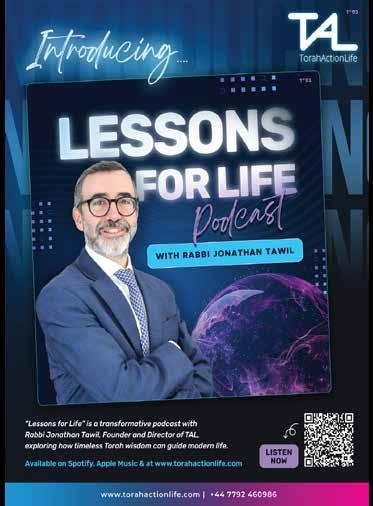
The sharing of food was the first act through which slaves became human beings. That was the time they were able to attach themselves to humanity, enabling their free will, conquering their ‘natural tendencies’ in order to give of themselves to become Bnei Chorin.
The Midrash has a fascinating commentary on the location of the first meeting between G-d and Moshe. It was at the Sneh (the burning bush), that Moshe was delegated to deliver the
Jews from the slavery of Egypt.
Our Sages relate it was because of the Sneh that the very spot would eventually be called Sinai.
The place where the mission began defined its purpose.
The goal was not simply to get the Jews out of Egypt, but rather to bring them to the mountain where they would receive the Law. Freedom without Torah (law) is inconceivable.
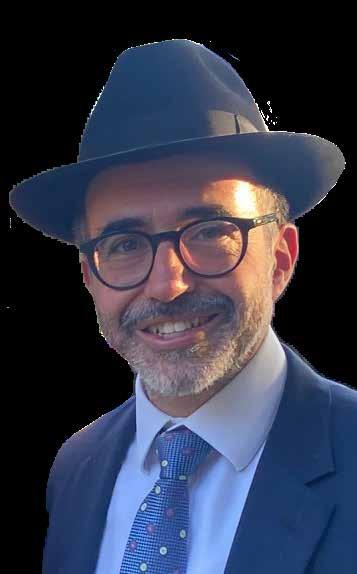
That is why Moshe subsequently told Pharaoh not only to “let my people go”, but added the all-important phrase “so that they may serve Me.” This is the freedom of Pesach, wedded to the moral covenant of the Torah.
From a Jewish perspective, to speak only of the ideal of freedom – while ignoring its necessary partner of responsibility – is to pervert its true meaning.
This is what Abraham Lincoln understood so well in his famous words, “Freedom is not the right to do what we want, but what we ought.”
And this is the real message of Pesach; G-d granted us the gift of physical freedom, so that we might become truly free to be guided by our spiritual selves.
The Hebrew word for Egypt is Mitzrayim, the root of which is Metzar, meaning constriction, narrowness, and limitation. Spiritually, as Pesach approaches, the same energy of freedom that existed at the time of the Exodus is available for us to tap into. It’s the ideal time to ask ourselves: What am I enslaved to that is holding me back from achieving my potential? What are the blockages, constrictions and limitations that stand in the way of accomplishing my goals in any area of my life? Am I a slave to my physical appetites, to social media and devices?
At the Pesach Seder we read, “In every generation we must each regard ourselves as though we personally had just left Egypt.” The goal is to use the tools we have been given to make this happen in the context of our own lives.
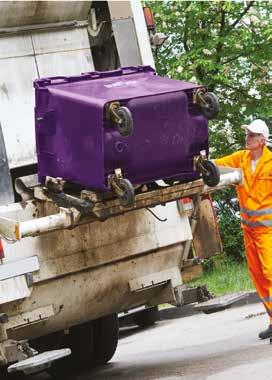


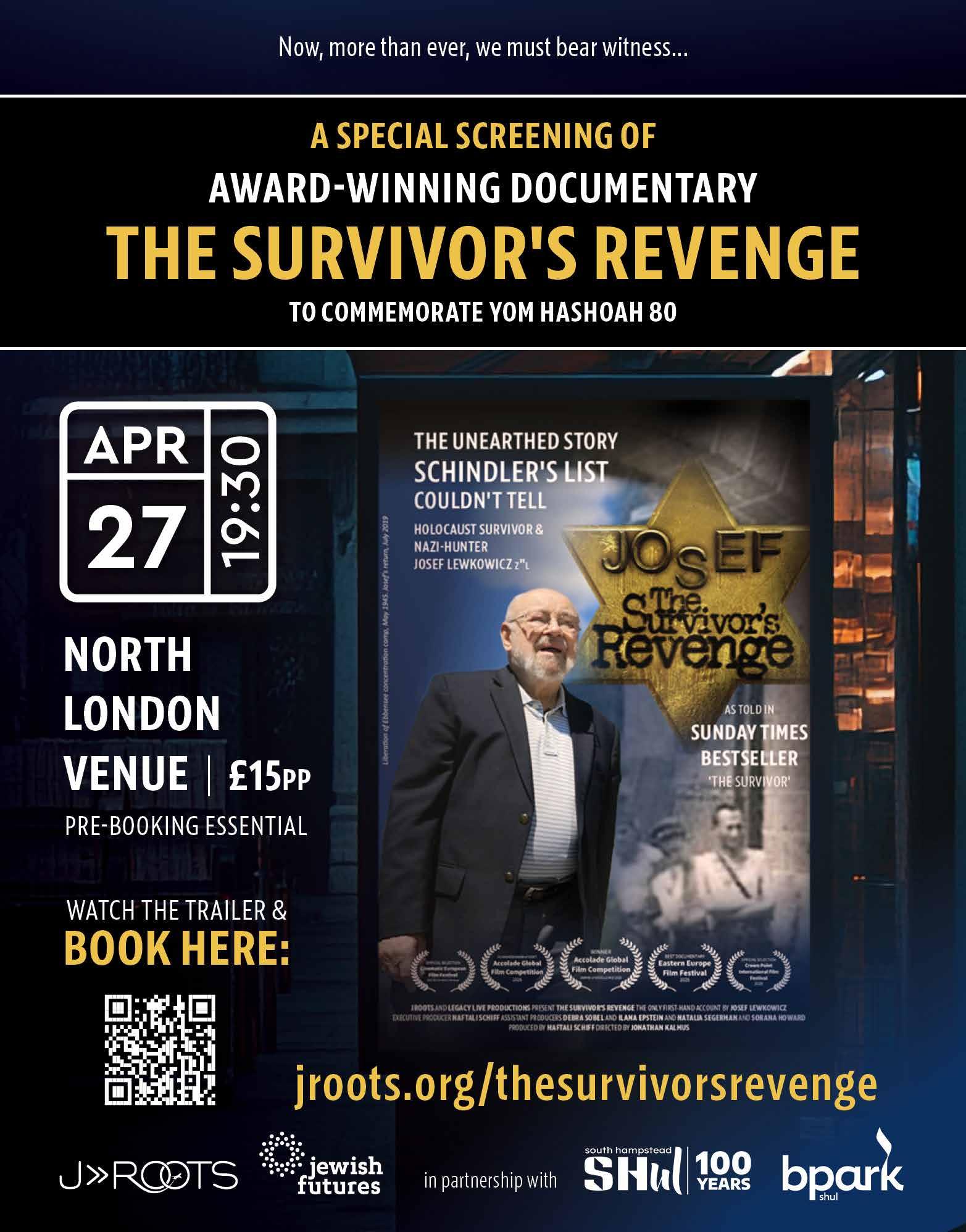
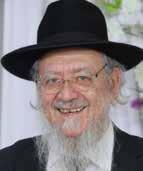
BY RABBI YAKOV SCHONBERG
Sanhedrin 113a explains that the curse by Yehoshua upon those who rebuild Yericho included both rebuilding the city, even if called by another name, and building any other city to be named Yericho. Yehoshua deliberately used the double expression, “this city, Yericho,” forbidding rebuilding this city whether or not it bore the same name and by also mentioning the name Yericho, he forbade the use of that name for a city built at another location. Yehoshua specifically cursed the builder of Yericho with the death of his children, mimicking HaShem’s method of punishing each person according to his sin, middah k’neged middah. The building of a city is an attempt to attain glory and be remembered through the city’s name by future generations. The punishment for building Yericho was therefore that the builder’s own future generations be cut off (Meam Lo’ez, I Melachim 16:34). Over five hundred years later, Chiel, a relative of the wicked king Achav, violated the oath and rebuilt Yericho. He thought he might escape Yehoshua’s curse by changing the spelling of the name to end with “heh,” but that did not save him from punishment and his sons died in accordance with Yehoshua’s curse. What was the reason for this prohibition, which was not applied to any other conquered city, and does it apply today? What was special about Yericho and can one still see the remnants of the walls?
Tanach’s concept of war is very different from the military model with which we are familiar. The physical threat which the enemies of Yisrael pose is secondary to the spiritual danger which they represent. As a bastion of idolatry, Yericho constituted a source of spiritual defilement, and it was this evil influence which the Jews were commanded to destroy. The spiritual war involved seven Kohanim blowing shofaros encircling the walled city for six consecutive days. On the seventh day the procedure was repeated seven times, then the Jews shouted in unison and the walls miraculously collapsed. The encircling of the city was symbolic of how an individual should eliminate inner impurities: as they marched around Yericho, the Jews were circumscribing the unworthy elements of their own personalities, and their teshuvah collapsed their barriers of separation from Hashem, as symbolized
by the walls of Yericho (Michtav M’Eliyahu, Yehoshua).
Although the Yehoshua pesukim refer to the collapse of a wall in the singular, there are references to seven walls found in the Rishonim. For example, the Rokeach, discussing the hakafos on Hoshanah Rabbah, writes that the seven circuits are reminiscent of the inception of the conquering of Eretz Yisrael by Yehoshua and the encirclement of the seven walls of Yericho (Sefer Rokeach 221). The Rokeach presumably had a source for stating that there were seven walls, and it is surmised that it is based on an early midrash that has been lost. There are several references to seven walls in early Acharonim. Rav Moshe Cordevero mentions it in connection with Yehoshua’s institution of the tefillah Aleinu L’Shabeach (Sefer Gerushin 89). Rav Chaim Vital brings a segulah in the name of the Arizal to say the first paragraph of Aleinu seven times forwards and backwards after each of the tefillos of Rosh Chodesh (Rav Yaakov Yisrael Stahl, Chitzei Giborim, vol. 10 pp. 542-585).
Besides the issue of seven walls, Rav Stahl discusses illustrations found in ancient manuscripts portraying the seven walls of Yericho structured as a maze. One such manuscript was in the Sassoon collection, known as the Farhi Tanach (ms. 368), written in 1386 in Provence. About sixty-five years ago, our Pirchim group was invited by Rabbi Solomon Sassoon to view his amazing collection of manuscripts in his home in Letchworth, about forty miles from London, as a Chol HaMoed Pesach outing. He wheeled the priceless manuscripts, open on a trolley, down an aisle where we were sitting, so that we could all see the treasured volumes while he described them. Rabbi Sassoon sold his manuscripts in the 1970’s before emigrating to Eretz Yisrael and they are now dispersed across the world. This volume has a series of full-page miniatures illustrating Tanach topics, one of which is a diagram of the arrangement of the walls of Yericho, as shown here. It depicts the seven walls structured as a labyrinth, and the path necessary to enter the city is marked in blue. Portrayal of the seven walls of Yericho as a maze is found in several similar early manuscripts – another example is the Xanten Tanach (N.Y. Spencer 1) dated 1294. Rav Stahl cannot find any midrash source which mentions the idea of the maze arrangement.
Seder Hayom (Venice 1599) writes that Yehoshua composed the first paragraph
of the Aleinu prayer that we recite at the end of each of the three daily tefillos, as a special praise to HaShem upon entry into Eretz Yisrael. With this prayer Yehoshua collapsed the seven walls of Yericho, saying it seven times forwards and backwards, and that is a segulah against any calamity that might befall a person. Yehoshua’s original name, Hoshea, is hidden in the acrostics of the initial words read backwards:,אלש ,ונילע אוה ,ונחנאו . Some chassidim have the custom to recite this paragraph, and then to read it in reverse, after each hakafah on Simchas Torah. Chassidei Sanz read it forwards after the first, third, fifth and seventh hakafos, but in reverse after the second, fourth and sixth hakafos. We can possibly understand the walls depicted as a maze would resolve the problem of reconciling the pasuk indicating a single wall with the tradition of seven walls. The maze has seven layers of walls, but they are all connected, so they can be considered as one long wall. The maze may also reflect the tradition of saying Aleinu backwards and forwards, as the path winds backwards and forwards around the city. The Sanz custom of reversing readings at alternate hakafos fits the pattern of circuits exactly if one follows the direction of the blue line.
Rabbi Elie Munk discusses the kiddush levanah custom to repeat the pasuk tipol aleihem three times and then another three times in reverse order. He explains that the reverse sequence of words indicates that the natural order of nature may sometimes be reversed. It implies a supernatural, miraculous Divine intervention which reverses the normal, natural course of events and which we pray may be demonstrated in thwarting those who seek our harm (World of Prayer, vol.2 p.99). See illustration of Aleinu in reverse order of words.
There is a special berachah to be recited by one who sees the wall of Yericho (Berachos 54a). Although the identification of Tel Sultan as the biblical Yericho is not in dispute, one would need to identify actual remains of the walls that collapsed miraculously (Mishnah Berurah 218:7). There have been four excavations at the tel over the past century, which have revealed that Yericho was enclosed by mighty walls from about 1,000 years prior to Yehoshua, which were destroyed and were rebuilt a number of times. Rabbi Yehudah Landy z”l argues that Canaanite artifacts were discovered, with the latest Canaanite layer dated around 1275 BCE. According to Seder Olam, Yetzias Mitzrayim took place in 1312 BCE (2448) and Yericho was

destroyed forty years later in 1272 BCE. This is incredibly close to what has been dated as the end of Canaanite occupation. However, in each case, the walls were rebuilt on the base of foundations of earlier walls made of stone, which have survived, but later construction was done with mud bricks which have eroded and have not survived (Uncovering Sefer Yehoshua, Feldheim 2024).
Rambam writes the reason that Yehoshua proscribed Yericho from ever being rebuilt was so that the miracle of the collapse of the walls remain visible for future generations, when they would see the walls sunken into the earth (Moreh Nevuchim 3:50). On that basis, Rav Reuven Margolies suggests that the prohibition only involved rebuilding the city as a whole which would destroy remnants of the walls, but not to the building of individual houses. Several sources in Tanach indicate that people lived in Yericho before Chiel’s time, but Chiel rebuilt the walls, as indicated by the punishment that his firstborn died when he laid the foundation and his youngest when he set up the gates. Rashi here has a different approach and says that Chiel built at a different location, but called it Yericho. This follows the Yerushalmi (Sanhedrin 10:8) – “R’ Shimon ben Elazar says: they did not build it, rather they built another city and once it is built you are permitted to live in it.” This halachah became particularly relevant in 1872 when the Sultan offered plots of land for sale in Yericho, and Rabbonim were asked for a ruling whether it was permitted to build and live there. The sale did not materialize, but we have teshuvos discussing this issue. Rav Meir Auerbach and Rav Chaim Berlin paskened that it was permitted to build and live there, based on this Yerushalmi that once it had been built previously, there was no longer any prohibition. (Shem U’Sheiris L’Nefesh Chayah 6). Rav Moshe Sternbuch also writes similarly and adds that the prohibition is only to build a complete city with its walls, thus replicating the original city, which was obliterated, but individual houses were permitted (Moadim U’Zemanim 2, 5784 p.356).
Rabbi Schonberg was born in London in 1948 and attended Hasmonean School. He attended Manchester, Chaye Olam and Gateshead Yeshivos.
To contact Rabbi Schonberg, please email, yschonberg@gmail.com
To find out more, you can sign up at mercazdafyomi.com and receive a free gemoroh.

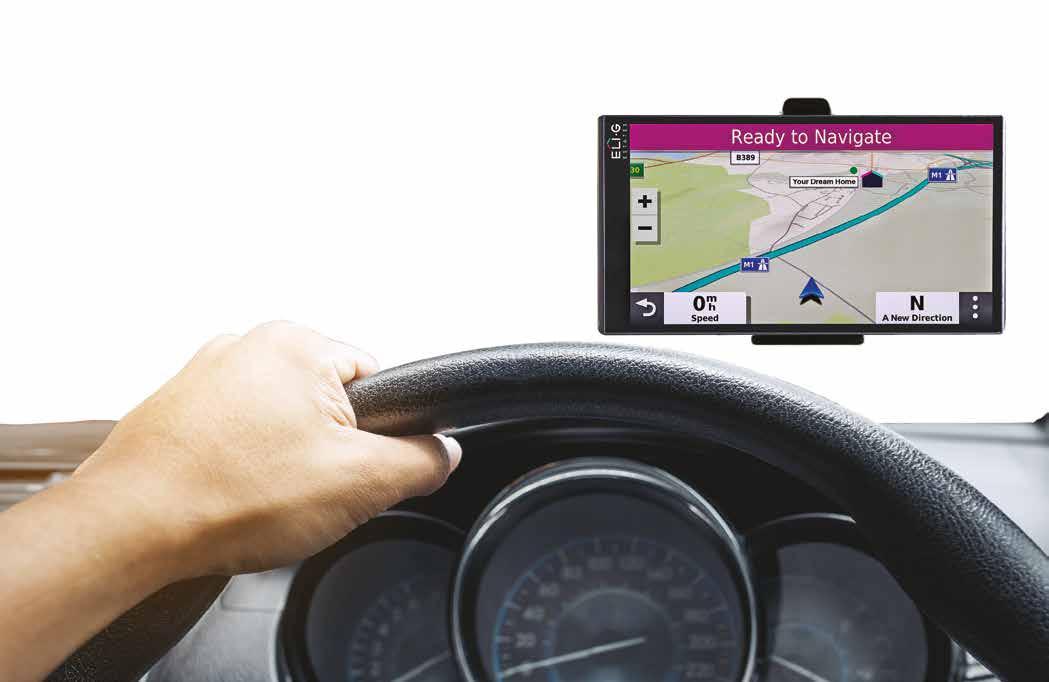
This week’s parsha opens where we left off; korbanot. Currently, Hashem tells Moshe to tell Aharon that he is forgiven for the golden calf incident (remember that?). To prove it, He commands Him to take up the mantle of High Priest, Kohen gadol and do the korbanot, sacrifices. This includes the Olah that we
mentioned last week, and the shelamim (elevation and peace offerings).
This is what a typical day in the mishkan looked like. Once the day began,the kohanim opened the gates and washed their hands and feet in the special kiyor, the basin made from the mirrors donated from the women. Next, all kohanim
I have fulfilled a Rabbinical commandment when I was not yet commanded to fulfill a Torah commandment. Therefore, I can no longer fulfill the Torah commandment when I am commanded to fulfill it. How is this possible?
A minor who became an adult between Pesach and Pesach Sheini (a month later, Iyar 14). In such a case in the time when the Holy Temple stood, he is responsible for eating the Pesach offering on Pesach Sheini. But if he was included in the Pesach offering on Pesach itself (and thus fulfilled eating the Pesach offering only on a Rabbinical level), he is exempt from fulfilling it again on Pesach Sheini (even though it would now be a Torah commandment since he as an adult).
put their names into a lot and a goral (lottery) was picked as to who had the privilege to do each job . Once the jobs were allocated, the kohanim split up. Some went off to clean the ashes or clean and light the menorah (a job Aharon liked to do himself and was very diligent about). Others ran to check the animals and choose two
good sheep for the daily tamid offering. One kohein shechted (slaughtered) it and then the pieces were divided among those who won the honour to place them on the mizbeach, altar. Others went to prepare the mincha offering of the tamid and offer it up.
Number of Lines - 170
Number of Verses - 97
Number of Words - 1,353
Number of Letters - 5,096
This week’s Question:
Halachically, what do the following days have in common?
21 Cheshvan 3 January 15 Iyar
Using all the shapes, can you make the shape on the right?
The goal of a word wheel puzzle is to create as many words possible with the letters in the word wheel. Each word must contain at least three letters. You can only use each letter once and every word must have the letter in the centre of the wheel.
Last edition’s words
Here are some words you may have found from last week – you may have found more!
R T I C N C R E O
Use the area below to write the words you have found.
Q: Why does Wally wear stripes? A: He doesn’t want to be spotted!
Q: Did you hear about the two guys that stole a calendar? A: They both got six months!
Q: Why do you never see elephants hiding in trees? A: Because they are really good at it!
1. What starts with P and ends in E and has thousands of letters?
2. What occurs once in a minute, twice in a moment and never in a thousand years?
3. Why is an island like the letter T? Answers
3. Because it is in the middle of water abs bad bar bas boa bod bow bra bro cab cob dab orb rob sob back bard bark bars bask bawd boar boas bock bods bows brad bras bros brow cabs carb cobs crab dabs drab orbs robs scab swab backs bards barks bawds board boars bocks brads broad brows carob cobra crabs adsorb boards broads carobs cobras backsword
Q: What kind of lights did Noah have on the Ark? A: Floodlights!


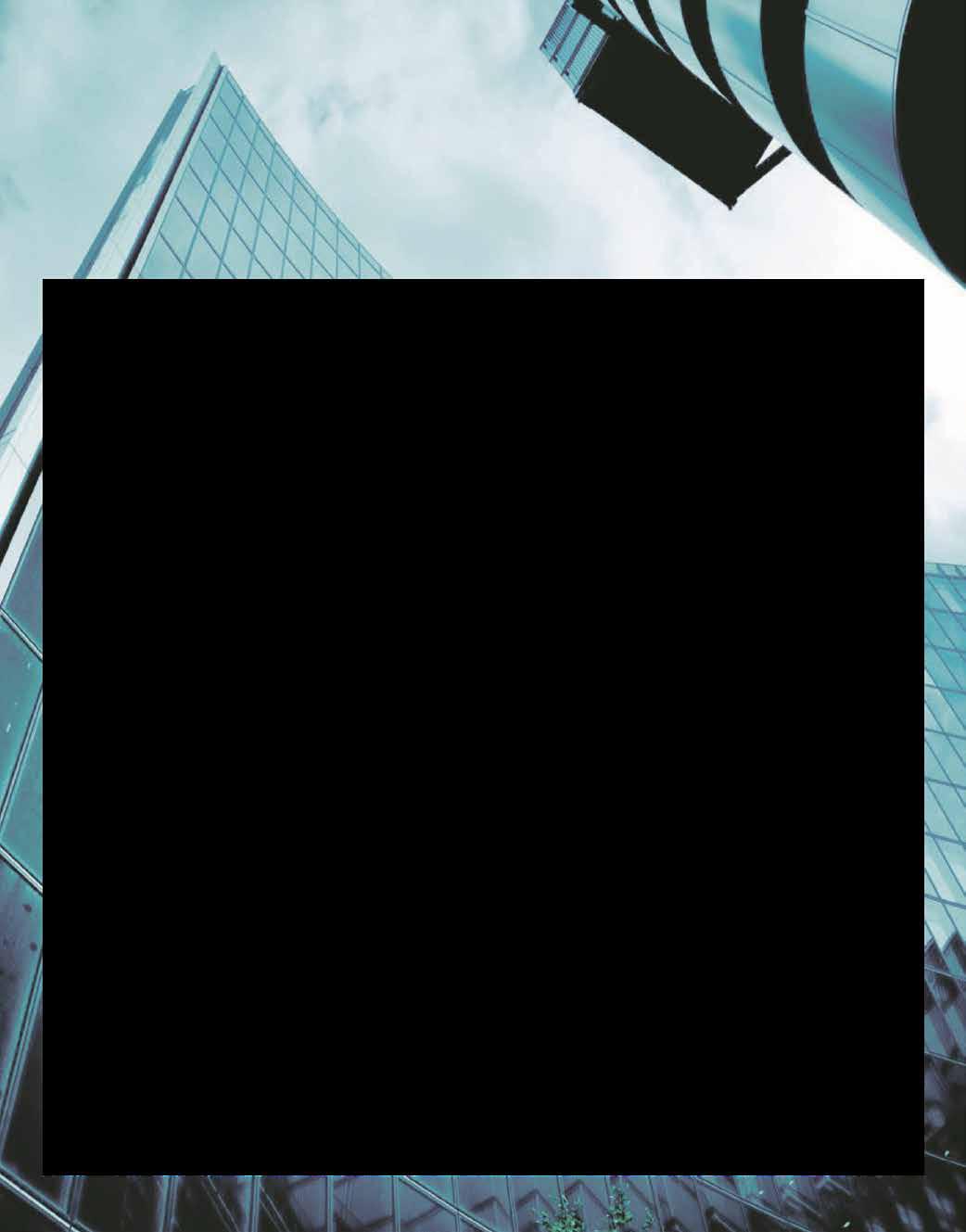




BY SAM BACALL AND ADAM CAPLAN, PARTNERS AT FREEDMAN, FRANKL AND TAYLOR
The start of a new tax year rarely makes front-page news – but we think it should.
Behind the headlines and political posturing, 6 April marks a moment of real financial significance. It’s an opportunity for all of us to pause, reset, and plan.
But what exactly are we planning for?
This year’s Spring Statement didn’t provide many clues. The Chancellor proudly declared “no further tax increases” – which may sound like good news at first glance.
But in truth, it only confirms the status
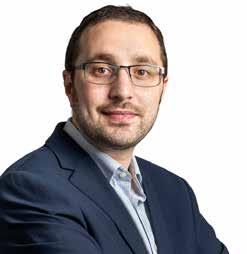
quo.
Personal tax thresholds remain frozen, meaning more people will drift into higher tax bands through wage inflation.
With Trump’s tariffs threatening both British and European markets, coupled with the ongoing war in Ukraine, we may also see the cost of living increase progressively in the next 12 months.
Again, the Spring Statement failed to introduce new measures to ease the burden on savers, investors, or retirees in light of these global issues.
So yes, we may have avoided fresh tax hikes – but we’ve also missed an opportunity for meaningful reform.
At a time when the cost of living continues to impact everyone, and interest rates are yet to truly settle, that silence may feel more like indifference than relief.
Which brings us back to that question: is it a happy new tax year?
It depends on what you do with it.
Now is the time to take a closer look at your personal finances.
• Could you update the way you get paid by receiving dividends through your business?
• Are you making full use of your ISA or pension allowances?
• Have you thought about how Capital Gains Tax and Business Asset Disposal Relief changes will impact your exit strategies?
• Will Dividend Tax changes affect you over the coming year?
For those of you who are higher earners, there’s also the risk of creeping into tax traps like the personal allowance taper, which can push your effective tax rate well above what you’d expect.
Strategic planning around income timing, pension contributions, or charitable giving can help mitigate that.
Equally, if your income has crept over £60,000, you might find yourself losing your Child Benefit entitlement – a painful surprise for many parents who hadn’t planned for it.
Ultimately, we want you to see the new tax year a bit like your annual MOT – just for your money rather than your car. It won’t fix everything overnight, but it gives you a chance to lift the bonnet, spot any issues, and make some smart decisions for the road ahead.
If you want this tax year to feel a little less stressful, now is the time to speak to an accountant.
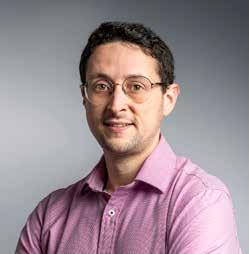
FFT has been guiding families and business owners for generations – with integrity, dedication and foresight –and we will be happy to speak with you.
Speak to our team by calling: 0161 834 2574 or emailing: mail@fft.co.uk

• Finest quality suits all now 1/2 price
• Raincoats from £49.50
• Polo Shirts £15 any 2 for £20
• Knitwear Bargains £15 each 2 for £25
• Shirts £25 any 2 for £45
• Trousers up to 58 waist £29.50 2 pairs for £55
• Casual Jackets from £29.50
• Sports Jackets and Blazers all 50% off marked prices
• Big sizes no problem up to 60 inch chest and 21 inch shirts
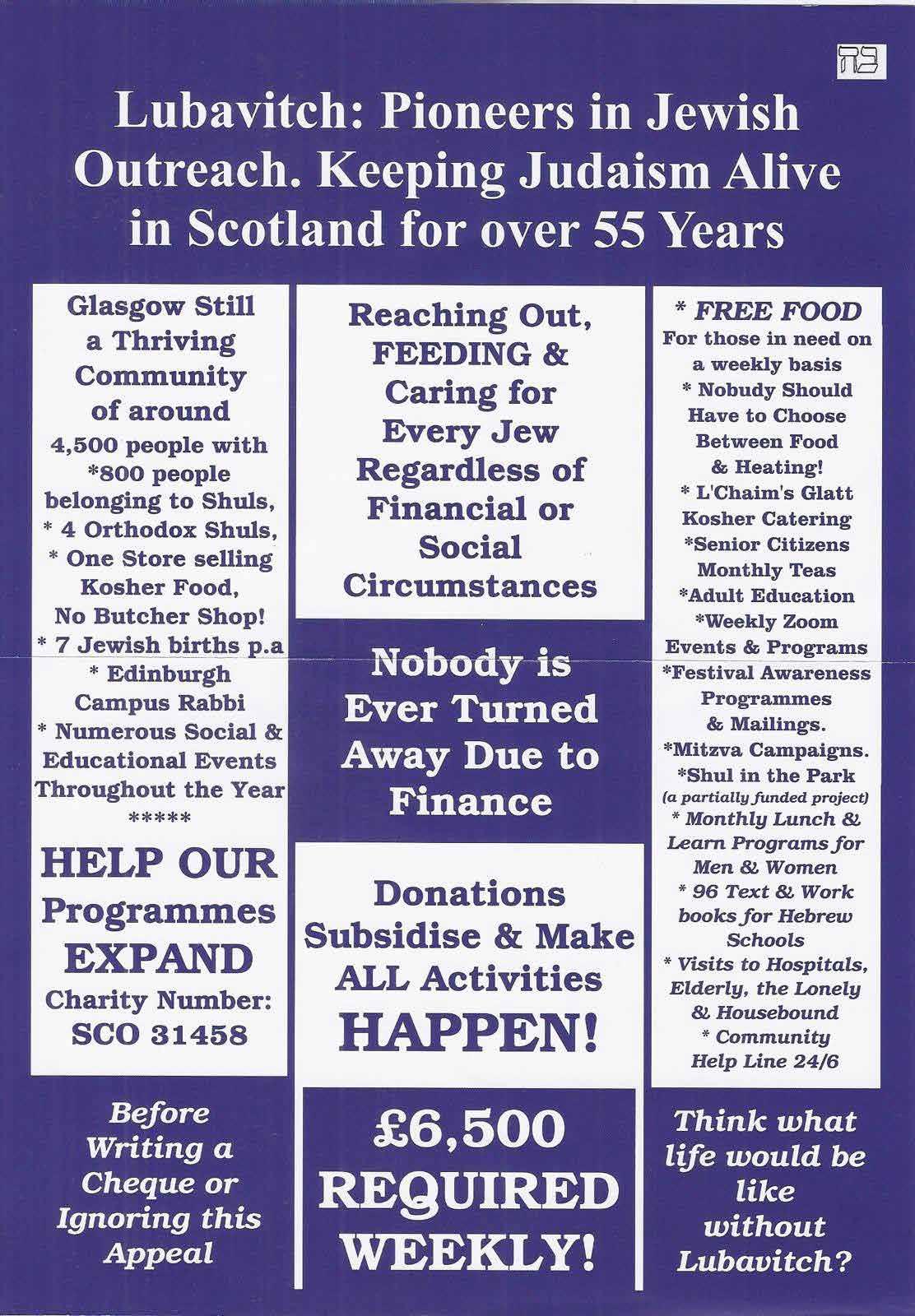



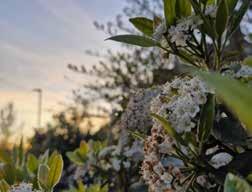
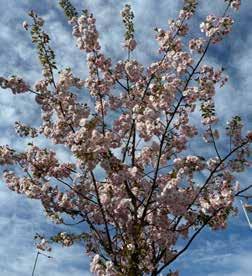
BY RABBI YONASAN ROODYN
There’s a quiet joy that arrives each year, almost unnoticed at first. The streets remain chilly, and coats are still worn as we go about our routines. But if we pause for a moment and lift our eyes from the busyness of daily life, something subtle begins to reveal itself. The trees are starting to blossom. Delicate pink and white petals appear on bare branches, a gentle but unmistakable sign that something is shifting. The long winter is giving way to new beginnings, and the world is beginning to wake up once again.
The Jewish month of Nissan has always been a time associated with renewal, freedom, and fresh starts. It is the month of Pesach, when we remember our journey from slavery in Egypt to the beginnings of nationhood. But beyond the national memory lies a personal opportunity as well. Nissan invites us to step outside, take in the beauty of the world around us, and recognise that Hashem’s creation is not only purposeful but filled with kindness, care, and beauty.
One beautiful custom observed in this season is the bracha said upon seeing fruit trees in bloom for the first time that year. The blessing thanks Hashem, “Who left nothing lacking in His world, and created in it good creations and beautiful trees for people to enjoy.” It is a rare moment in the Jewish year that invites us to respond spiritually not from within a shul, standing before a Sefer Torah, but while walking through a park or down a quiet street. It reminds us that holiness and gratitude are not limited to sacred spaces - they can be found in the everyday world around us.
We often associate miracles with the
dramatic events in Jewish history - the splitting of the Yam Suf, the ten plagues, the Ananei HaKavod that led us through the desert. But there is another kind of miracle, one that is quieter and ongoing. It is the steady rhythm of the seasons. The return of warmth and light. The sudden appearance of colour and life after months of grey and stillness. Trees that looked bare and lifeless only weeks ago are now bursting with blossoms. This too is a miracle, and it speaks of Hashem’s constant involvement in our lives.
In this way, the bracha on blossoming trees becomes a meaningful preparation for Pesach. Before we sit around the seder table and speak of redemption and transformation, we are given the chance to witness those very ideas unfolding around us. Nissan is not only a time to recall what Hashem did for us in the past; it is a time to notice what He continues to do in the present. The same loving Hashem who brought us out of Mitzrayim continues to guide us through our own personal journeys.
The halacha teaches that the blessing on the trees is said only once a year, ideally during Nissan, and only when one sees at least two fruit trees blooming outdoors. While there is no requirement to say the bracha with others, many communities have adopted the beautiful custom of gathering to say it together. Whether with family, a school class, or members of the kehillah, saying the blessing as a group helps turn the moment into something shared and memorable. It creates space for hakaras hatov, for stopping to notice the world and thank Hashem—not just for the big things, but for the small daily gifts that so often go unspoken.
At Jewish Futures, we wanted to bring
this sense of awareness and appreciation into our own work environment. We invited our staff to take part in a spring photo competition, encouraging everyone to take a moment, notice the blossoming trees, and capture the beauty around them. The entries were thoughtful and moving. There were images of trees in bloom on city streets, children reaching up to flowering branches, and quiet corners of nature bathed in soft light. Each photo was more than just a picture. It was a reflection of awareness, wonder, and connection to something greater.
Perhaps that is the deeper message of this season. Just as a tree that appeared dormant suddenly comes alive with colour and life, each of us also has the ability to renew ourselves. Growth is possible, change is within reach. The natural world reflects what lies within the human soul. So, this Nissan, let us take a moment to pause. Let us walk beneath the trees, lift our eyes, and take in the blossoming around us. Whether or not we recite the formal bracha, we can still allow ourselves to feel gratitude, to notice the gifts in our lives, and to be inspired. Because in every petal, in every branch, in every sudden bloom, Hashem is offering us the same timeless message. The world is good. The world is beautiful. And it was created for us to enjoy, to reflect upon, and to grow from.
Chag Sameach.
Rabbi Roodyn is Educational Director of Jewish Futures, Educational Director of Chazon and Rabbi of Finchley Federation.

Last month, 37 university students from across the UK embarked on an extraordinary journey of inspiration, identity, and impact, as Aish UK’s premier Gold Track programme concluded with a life-changing trip to New York and Miami.
The trip, themed, “Upgrade: Living Life in First Class,” wasn’t about luxury - it was tapping into what really makes life beautiful. Carefully crafted in three stages; the experience offered students a first-class upgrade in both spirit and perspective.
This trip was always going to be popular, and was oversubscribed, with 65 applications. We went through a rigorous
process of interviewing all students, to ensure we ended up taking people with the right attitude to gain full value.
Stage One: Manhattan – A New Perspective
The adventure began at the One World Tower, offering breathtaking panoramic views of New York City from the highest viewpoint in the Western Hemisphere. This powerful vantage point was the perfect spot to introduce the theme.
In a stirring session, renowned lawyer and speaker Harry Rothenberg reminded the group to never apologise for their Jewish identity. His unapologetic
message of pride and authenticity set the tone for the days ahead.
The following morning, R’ Shlomo Farhi delivered a powerful class about Pesach followed by lunch at Olami Manhattan, hearing from its founder & director Rabbi Shmuel Lynn.
That evening, the group delved into the Jewish history of the Lower East Side with the unforgettable “Gangsters & Gedolim” walking tour, led by Rabbi Moshe Mayerfeld, former Aish UK educator. The day concluded with a delicious dinner at the Mayerfelds’ home, where Liat Mayerfeld shared a deep idea about finding comfort whilst pushing the limits outside comfort zones.1
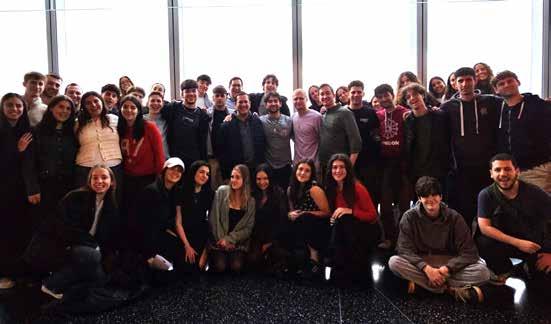
Stage Two: The Five Towns – A Taste of Community and Torah
Next stop: the vibrant Jewish communities of the Five Towns. The boys immersed themselves in Torah learning at Shaar Yoshuv Yeshiva, while the girls participated in an inspiring programme at the Young Israel of Cedarhurst.
Later that day, the group travelled to Monsey to meet world-renowned speaker Rabbi YY Jacobson, whose passion and humour captivated the students and challenged them to think more deeply about their spiritual potential. After dinner, the group cheered on the Yankees for a classic New York baseball experience.
Before leaving the area, the group
visited the famed Aish Kodesh shul to hear from Rav Moshe Weinberger, whose unique style and authenticity left a lasting impression. The journey then took a lighter turn with a visit to the American Dream mall, where students met the mall’s owner before enjoying complimentary tickets to the largest indoor theme park in America.
Stage Three: Miami – Sun, Soul and Self-Discovery
The final leg of the trip brought the group to sunny Florida. From relaxing on private boats to a magical Shabbos in Boca Raton, students bonded, reflected, and celebrated Jewish life in a warm and welcoming environment. A tour of the Everglades brought a taste of the wild, while an inspiring evening at Yehudi Miami, featuring Rebbetzin Adina Stilerman, gave the group spiritual food for thought.
The trip concluded with a contrast: an external tour of the luxury homes of Star Island, followed by a brunch and internal reflection on how far each student had come on their own Jewish journey. The message was clear - first class is not about what you have, but what you do with it.
Aish UK looks forward to welcoming the next group of Gold Track participants for another unforgettable journey this June. Until then, the memories, growth, and inspiration of this trip will continue to resonate in the hearts of these 37 students - and in the future they are now inspired to build.
